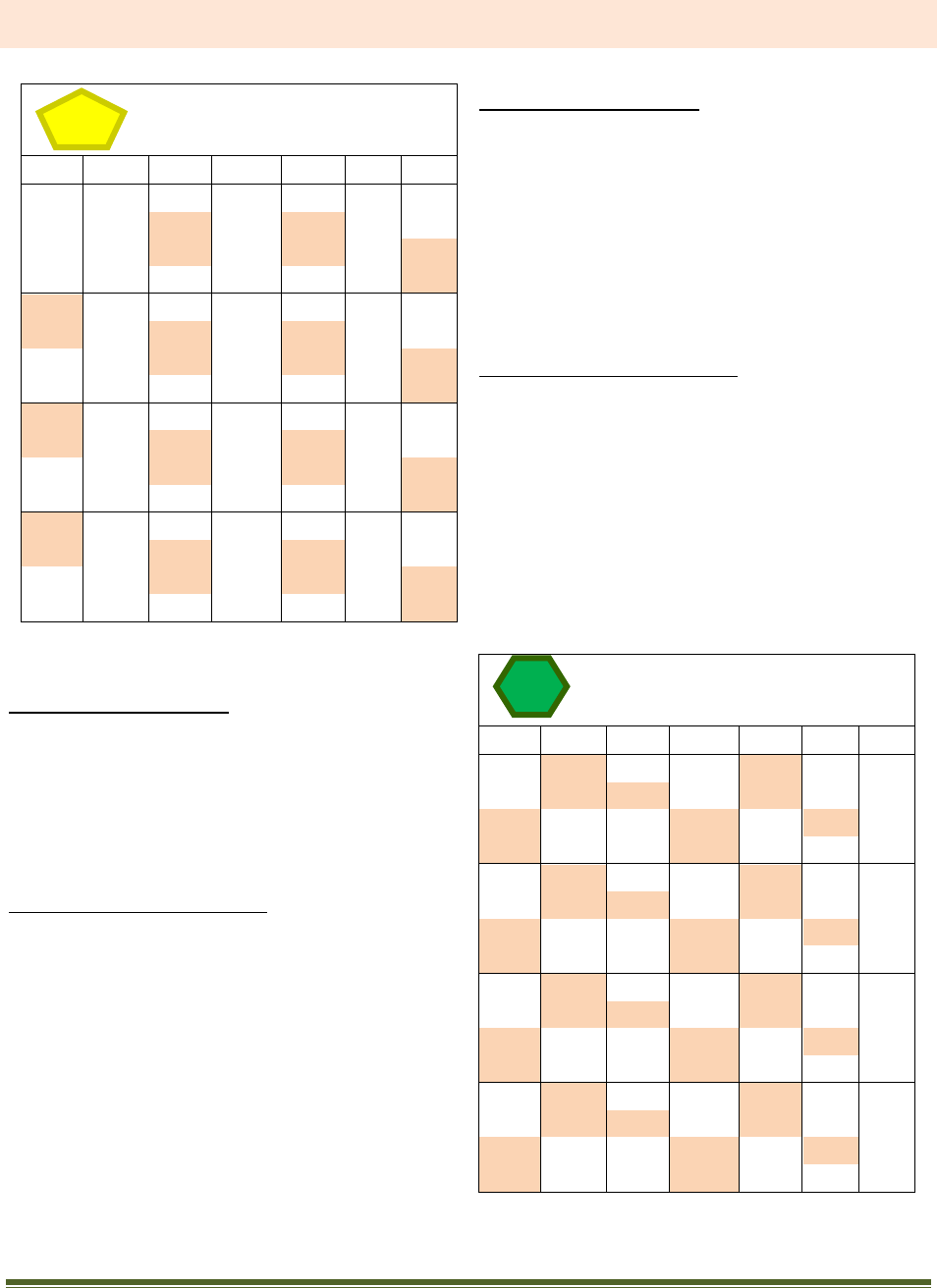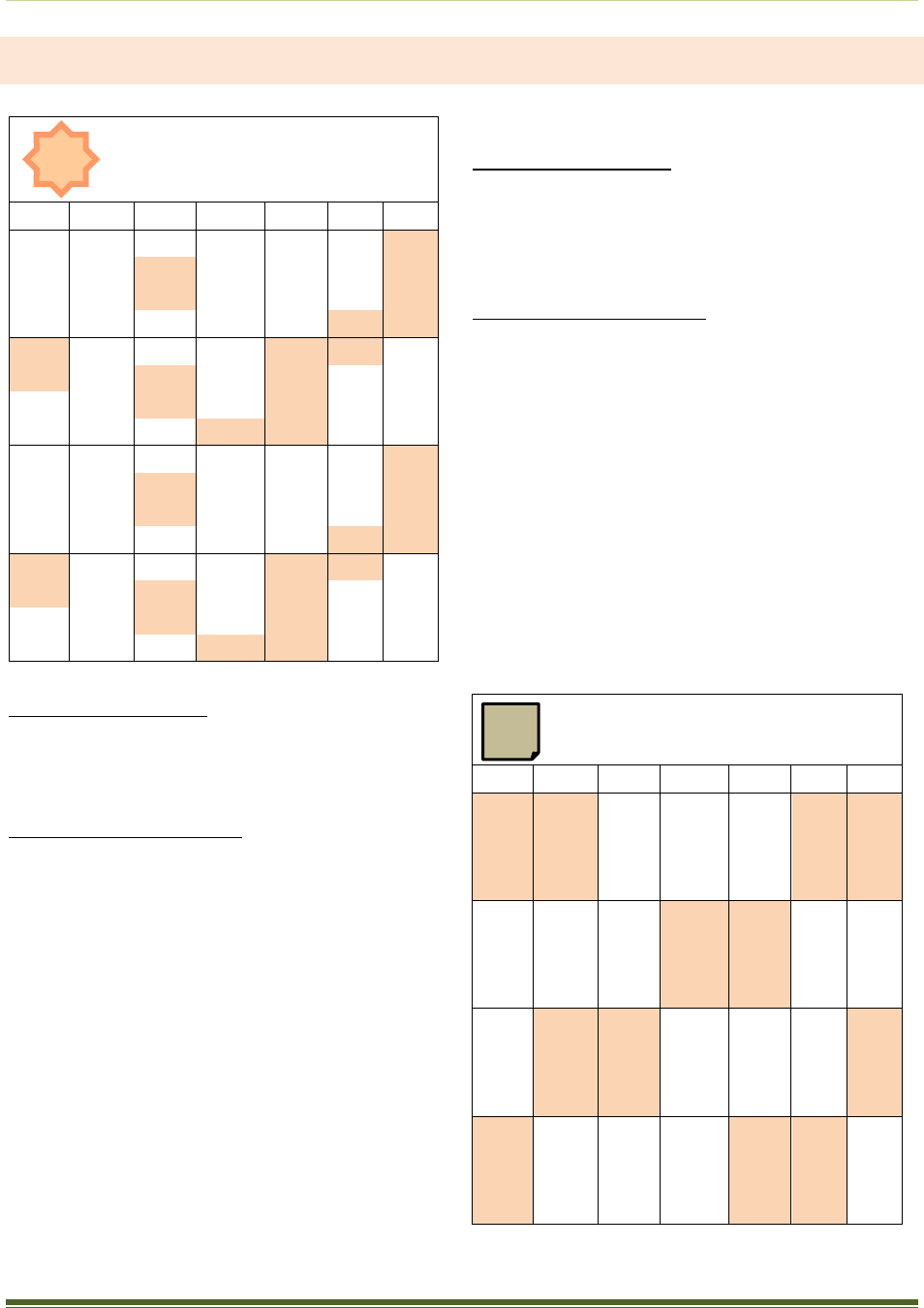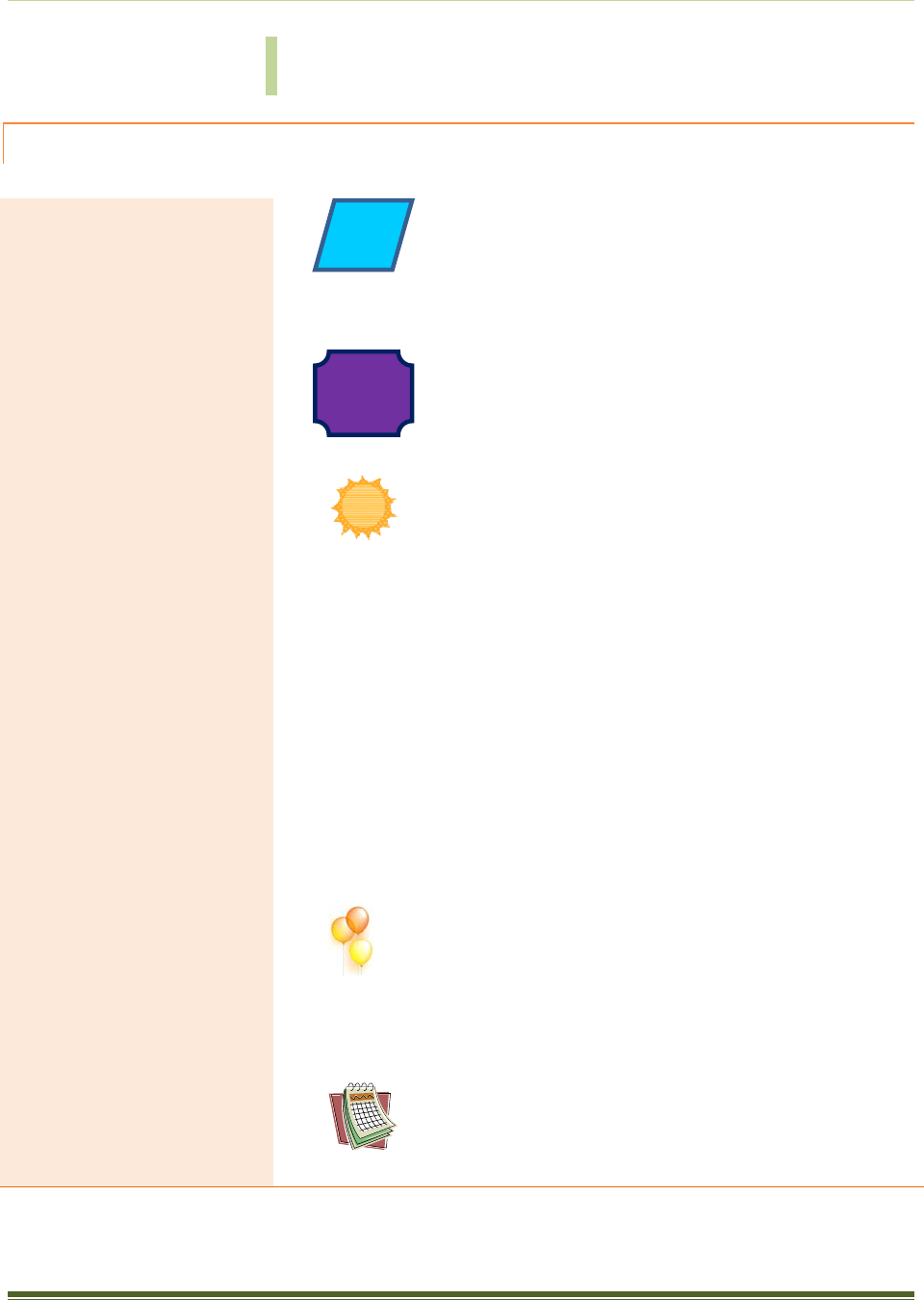

2
IMPORTANT WARNING ON THE LIMITATIONS OF THIS
GUIDE
WARNINGTOREADERS:Thisguidedoesnotprovidelegalopinionsorlegaladviceandis
notintendedtoserveasasubstitutefortheadviceoflicensed,legalprofessionals.Neither
theArizonaSupremeCourt,theAdministrativeOfficeoftheCourts,northeauthorsare
engagedinrenderinglegal,accounting,orotherprofessionalservicesthroughthisguide.
TheArizonaSupremeCourt,theAdministrativeOfficeoftheCourts,andtheauthorsdonot
warrantthattheinformationhereiniscompleteoraccurateanddonotassumeandhereby
disclaimanyliabilitytoanypersonforanylossordamagecausedbyerrors,inaccuracies,
oromissionsthatmayappearinthisguide.
Lawsandinterpretationsoflawschangefrequently,andthematerialcontainedinthis
guidecarrieswithitimportantlegalconsequences.Usersofthismaterialaresolely
responsiblefordeterminingtheapplicabilityofanyinformationcontainedinthisguideto
theirsituationandarestronglyencouragedtoseekprofessionallegalandotherexpert
assistanceinresolvingtheirparentingissues.

3
CONTENTS
ImportantWarningontheLimitationsofthisGuide.................................................................2
UsingThisGuide.........................................................................................................................................4
ToParents.....................................................................................................................................................5
WhichPlanShouldWeChoose?..........................................................................................................7
ParentingTimeSchedules......................................................................................................................9
SummaryofParentingTimeSchedules.........................................................................................10
ChildDevelopmentandSuggestedParentingPlans.................................................................21
Birthto2Years..........................................................................................................................21
2to3Years..................................................................................................................................25
3to5Years..................................................................................................................................28
6to9Years..................................................................................................................................31
10to12Years.............................................................................................................................35
Teenagers(13to18Years)...................................................................................................39
Holidays,Vacations,andSchoolBreaks.........................................................................................45
Long‐DistanceParentingandRelocation......................................................................................49
SpecialIssues.............................................................................................................................................56
AbsentParentReunification................................................................................................56
Blended(Step)Families.........................................................................................................56
Breast‐Feeding...........................................................................................................................57
ChildrenWhoDon’tWanttoSpendTimewithaParent.........................................57
ContactwithanIncarceratedParent................................................................................58
HighConflict................................................................................................................................58
Military..........................................................................................................................................59
NeverMarried.............................................................................................................................59
Safety..............................................................................................................................................60
SchedulesforFamilieswithChildrenofDifferentAges...........................................61
SpecialNeedsChildren...........................................................................................................61
Third‐PartyInvolvement.......................................................................................................61
ProfessionalServicesforParentsandChildren.........................................................................62
WordsYouMayNeedtoKnow..........................................................................................................64
WorkgroupMembers.............................................................................................................................67

4
USING THIS GUIDE
Thisguideforparentingtimeisintendedtoprovidehelpful
ideasinmakingdecisionsaboutparentingtime.Aparenting
planisadocumentthatstateswhenthechildrenwillbewith
eachparent(parentingtime)andhowmajordecisionswillbe
made(legalcustody).Thisguideprovidessampleplansfor
parentstouseinreachingagreementsorpresentingproposals
tothecourt.Attorneys,mentalhealthprofessionals,mediators,
andjudgesmayalsofindtheparentingtimeplansusefulin
resolvingfamilycourtdisputes.
Parentsareencouragedtoreadthismaterialandseek
additionalinformationandadviceinordertomakethebest
decisionsfortheirchildren.Thisguidewillhelpparentsreduce
conflictandreachagreementsmoreeasily.
RememberThisGuide:
ISatoolforparents;
ISNOT“thelaw”;
DOESNOTprohibitorlimitparentsor
judgesfromcreatingparentingplansthat
differfromthesampleplanspresented
here;
DOESNOTmandateaminimumor
maximumamountofparentingtimefor
eitherparent;and
MAYNOTbehelpfulinallcircumstances.
Thisguideisa
toolforyouto
usetodesigna
parentingplan
thatwillwork
bestforyouand
yourchildren.

5
TO PARENTS
Raisingchildrenpresentschallenges.Whenparentsliveinseparate
homes,thechallengesaregreaterbecauserelationshipsbecome
morecomplicated.Sometimesparentsdisagreeabouthowmuch
timechildrenshouldspendwitheachparent.
Astatewidecommitteeofjudicialofficers,mentalhealthproviders,
andattorneyscreatedthisplanningguideafterconsultingwithwell‐
knownexpertsonchilddevelopmentandafterreviewingcurrent
researchandguidelinesfromothercommunities.Decisionsabout
parentingtimedependonmanythings,particularlytheageofthe
child.Thisguideoffersinformationaboutwhatachildlearns,feels,
andneedsatdifferentages.Italsoprovidessuggestedplansforeach
agegroup.
Unlessspecialcircumstancesexist,preservingahealthyandongoing
relationshipbetweenchildrenandbothparentsafterdivorceor
separationisofgreatestimportance.Positiveinvolvementwithboth
parentsfurthersthechild'semotionalandsocialdevelopment,
academicachievement,andoveralladjustment.Adultchildrenof
divorcedescribethelossofcontactwithaparentandconflict
betweentheirparentsasthemostpainfulpartofdivorceorparental
separation.
WHY PARENTING PLANS ARE NECESSARY
Writtenparentingplansprovidechildrenandparentswith
predictabilityandconsistencyandcanpreventfutureconflict.This
guideencouragesopendiscussionandcooperationbetweenparents.
Courtspreferthatparentsreachagreementsaboutparentingtime.
Whenparentsreachagreements,theyaremorelikelytocooperate
astheirchildrengrowup.Childrendobestwhentheirparents
cooperatewitheachother.Thereverseisalsotrue.Childrenwho
experienceongoingconflictbetweenparentsareathighriskfor
sufferingseriouslong‐termemotionalproblems.Ifparentsneedhelp
toworkouttheschedules,court‐sponsoredandprivatemediation
servicesareavailableinmostArizonacounties.
Theparentingplanwillalsoincludeastatementaboutlegalcustody.
InArizona,parentsmayhavesoleorjointlegalcustody.Parentsmay
agreethatoneparentwillhavesolecustodyorthatjointlegal

To Parents
6
custodyisintheirchildren’sbestinterests.Aparentwhohassole
custodyhastherighttomakemajordecisionsaboutthechildren’s
health,education,andreligiousupbringing.Parentswhohavejoint
legalcustodymakesuchdecisionstogether,unlessotherwise
specified.Parentswithjointlegalcustodydonotnecessarilyhave
equalparentingtime.
Thekeytosuccessfulco‐parentingisawrittenparentingplanthat
statestheagreementsparentsreachaboutlegalcustody,thesharing
ofrightsandprivileges,andthescheduleforparentingtime.In
Arizona,jointlegalcustodyrequiresawrittenparentingplanthat
mustbereviewedperiodicallyandprovidesawaytoresolve
conflictsaboutcustodyandparentingtime.Theparentingplanalso
mustincludeastatementthatjointcustodydoesnotnecessarily
meanequalparentingtime.
HOW TO USE THIS GUIDE
Readtheplansforyourchild’sage.
Talkwiththeotherparentabout
custodyandparentingtimethatmeets
yourfamily’sneeds.
Usetheblankcalendaronpage9of
thisguidetomarkthedaysandtimes
eachparentwillhaveparentingtime.
Thisguideincludessamplecalendars
withsamplelanguagetoincludein
courtorders.Theseareexamplesonly.
Youcanchooseanydaysortimesyou
wish.
Parentingplanformsareavailableat
self‐servicecenters,incourthouses,
andontheInternet. Fill out the form
and file it with the court.
If you need help, contact your local
Conciliation Services Department at the
superior court or a private mediator. (See
page 62 for more information.)

7
WHICH PLAN SHOULD WE CHOOSE?
Thefollowingparentingtimeoptionsaredesignedtoallowparents
orthejudge,ifnecessary,tochoosetheproperplanafterconsidering
thefamily’suniquecircumstances.Childrendifferinhowlongthey
arecomfortablebeingawayfromeachparent.Somechildrenlike
spendingmoretimeatonehome,whileothersmovebetweenhomes
easily.Parentsmayneedtoacceptdisruptionoftheirownschedule
andspendmoreorlesstimewiththeirchildrenthantheypreferso
theycangivethechildrenasenseofsecurityandwell‐being.
Whenchoosingaplan,parentsshouldthinkaboutthechild’s
relationshipwitheachparent.Itmaybenefitthechildtochange
fromoneplantoanotherasthechildgetsolder.Ifaparenthasnever
beenapartofachild'slifeorhasn’thadcontactwiththechildforan
extendedperiod,parentingtimeshouldstartslowlyandgradually
increaseasthechildadjustsandfeelscomfortable.
Ifparentsdon’tagreeoncustodyandparentingtime,thejudgewill
evaluatethecase,decidecustody,andorderaplanthejudgefindsis
inthechildren’sbestinterests.
IMPORTANT QUESTIONS TO CONSIDER WHEN CHOOSING A PLAN
• Howoldisthechild?
• Howmatureisthechild?
• Whatisthechild’spersonality?
• Howstrongisthechild’sattachmenttoeachparent?
• Doesthechildordotheparentshaveanyspecialneeds?
• Whatarethechild’srelationshipswithsiblingsandfriends?
• Aretheparents’homestoofaraparttomaintainregularand
frequentcontact?(Seepage49on"Long–DistanceParentingand
Relocation.”)
• Howflexiblearetheparents’andchild’sschedules?
• Whatchildcarearrangementsareneeded?
• Howandwherewillexchangestakeplace?
• Howwilltransportationbeprovided?
• Howwellcantheparentscommunicateandcooperate?
• Whatarethechild'sandtheparents'culturalandreligious
practices?

Which Plan Should We Choose?
8
• Arethereanyparentalfitnessconcerns,suchasdomestic
violence,substanceabuse,ormentalhealthproblems?
• Whatiseachparent’sabilityandavailabilitytocareforthe
child’sneeds?
• Willtheparentbeabletoexercisetheparentingtime
consistently?
CHILDREN BENEFIT WHEN
PARENTS:
• Helpthechildhaveregularcontactwith
theotherparentbyphone,letter,audio
andvideotapes,e‐mail,andotherformsof
communication
• Keeppredictableschedules
• Areontimeandhavethechildready
whenit’stimeforthechildtogowiththe
otherparent
• Exchangethechildwithoutarguing
• Supportthechild’srelationshipwiththe
otherparent
• Letthechildcarry"important"itemssuch
asfavoriteclothes,toys,andsecurity
blanketswiththembetweentheparents'
homes
• Followsimilarroutinesformealtime,
bedtime,andhomeworktime
• Handlerulesanddisciplineinsimilar
ways
• Supportcontactwithgrandparents,step‐
parents,andotherextendedfamilysothe
childdoesn’tlosetheserelationships
• Areflexiblesothechildcantakepartin
specialfamilycelebrationsandevents
• Giveasmuchadvancenoticeaspossible
totheotherparentaboutspecial
occasionsornecessarychangestothe
schedule
• Providetheotherparentwithtravel
dates,destinations,andplaceswherethe
childandtheparentcanbereachedwhen
onvacation
• Establishworkableandrespectful
communicationwiththeotherparent
• Plantheirvacationsaroundthechild’s
regularlyscheduledactivities.
CHILDREN ARE HARMED WHEN
PARENTS:
• Maketheirchildchoosebetweenthem
• Questiontheirchildabouttheother
parent'sactivitiesorrelationships
• Makepromisestheydon’tkeep
• Dropinandoutofthechild’slife
• Areinconsistentinusingtheirparenting
time
• Arguewithorputdowntheotherparent
infrontofthechildorwherethechild
canoverhear
• Discusstheirpersonalproblemswiththe
childorwherethechildcanoverhear
• Usethechildasamessenger,spy,or
mediator
• Stoporinterferewithparentingtime
becausechildsupporthasn’tbeenpaid
• Don’tshowrespectforeachother
• Underminethechild’srelationshipwith
theotherparent.

9
PARENTING TIME SCHEDULES
Thefollowingplansarejustideasthatmayormaynotwork
foryourchildren.Feelfreetouseoneofthenumberedplans
ordesignaplanthatworksbestforyourchildren,basedon
work,school,activities,andotherconsiderations.
Usethisblankcalendartodesigntheschedulethatbestmeets
yourneeds.
It’srecommendedthatyoureadtheChildDevelopment
sectionthatappliestoyourchildbeforedecidingona
parentingtimeschedule.
Parenting Time Schedule
Sun Mon Tues
Wed
Thurs
Fri Sat

Parenting Time Schedules
10
5
SUMMARY OF PARENTING TIME SCHEDULES
PlanNo. Description
PAGE
BIRTH 24 MOS.
24 – 36MOS.
3 – 5 YEARS
6 – 9 YEARS
1012 YEARS
TEENAGERS
Threeperiodsof3‐5hoursspaced
throughouteachweek
12
23
Twoperiodsof4‐6hoursspacedthroughout
eachweek
12
23
Two3‐5hourperiodsandone8‐hourperiod
spacedthroughouteachweek
12
23
24
25
Twoperiodsof3‐6hoursand1overnight
eachweek
13
23
24
Oneperiodofthreetosixhoursandtwo
non‐consecutiveovernightseachweek
13
24
26
Anequalparentingtimeschedulewherethe
childisn’tawayfromtheotherparentfor
morethantwoconsecutivedays
*Caution–Thisplanisdesignedonly
for
thoseparentswhocanagreeonthisplan.
14
24
*
*
*
Oneperiodof3‐6hoursandtwoconsecutive
overnightseachweek
15
27
1
3
4
6
7
2

Parenting Time Schedules
11
9
10
11
13
PlanNo. Description
PAGE
BIRTH 2 YEARS
2 TO 3 YEARS
3 – 5 YEARS
6 – 9 YEARS
1012 YEARS
TEENAGERS
Twodayswithoneparent(includingovernights)
followedby3dayswiththeotherparent
(includingovernights)withthisschedule
continuingovertime
15
27
Twoconsecutiveovernightseveryotherweek.An
additionalthree‐tosix‐hourperiodorovernight
maybeaddedeachweek.
16
29
32
36
42
Threeconsecutiveovernightseveryotherweek
andanadditional4‐6‐hourperiodeachweek
16
29
32
36
43
FourconsecutiveovernightsduringWeek1and
oneovernightduringWeek2
17
29
33
37
43
Spliteachweekandweekend
18
30
33
37
43
Eachparenthasthesame2consecutiveweekday
overnightseachweekandalternatesthe
weekends
19
30
34
38
43
Theparentssharetimewiththechildduring
alternating7‐dayperiods.Amidweekovernight
periodisoptionalwiththeparentwhodoesn’t
haveparentingtimethatweek.
20
34
38
44
8
12
14

Parenting Time Schedules
12
PARENTING TIME SCHEDULE: PLANS 1, 2 AND 3
Parenting Time: Plan
1
Sun Mon Tue Wed Thu Fri
Sat
Advantages of Plans 1, 2, and 3:
• The child has frequent but short visits
with the non-custodial parent.
• Offers consistency and predictability
• The custodial parent gets a few
“breaks” throughout the week.
Disadvantages of Plans 1, 2, and 3:
• There are 6 exchanges each week,
which might be difficult if the parents
don’t get along.
• The week may seem a bit “choppy” or
broken up.
Parenting Time: Plan 2
Sun Mon Tue Wed Thu Fri
Sat
Parenting Time: Plan 3
Sun
Mon
Tue
Wed Thu Fri
Sat
1
3
2

13
PARENTING TIME SCHEDULE: PLANS 4 AND 5
Parenting Time:
Plan 4
Sun Mon Tue Wed Thu Fri
Sat
Advantages of Plan 4:
• The child has frequent but short visits
with the non-custodial parent.
• The custodial parent has a few
“breaks” throughout the week.
• There is consistency and
predictability.
Disadvantages of Plan 4:
• There are 5-6 exchanges each week,
which might be difficult if the parents
don’t get along.
• The week may seem a bit “choppy” or
broken up.
Advantages of Plan 5:
• The child has frequent but short visits
with the non-custodial parent.
• The custodial parent has almost daily
“breaks.”
Disadvantages of Plan 5:
• There are many (almost daily)
exchanges, which might be difficult if
the parents don’t get along.
• The week may seem a bit “choppy” or
broken up.
Parenting Time: Plan 5
Sun
Mon
Tue
Wed Thu Fri
Sat
4
5

Parenting Time Schedules
14
PARENTING TIME SCHEDULE: PLAN 6
Advantages of Plan 6
• The child never goes more than two days
without seeing a parent.
• Many parents like the longer blocks of
time to better bond with the child.
Disadvantages of Plan 6
• There is no consistency (what happens in
one week does not happen again for four
weeks), which may make it hard to make
plans.
• Some young children may dislike not
seeing a parent for two full days.
• The week may seem a bit “choppy” or
broken up.
• Neither parent has a full weekend with
or without the child.
Parenting Time: Plan 6
Sun Mon Tue Wed Thu Fri
Sat
6
Comment: The use of Plan 6 requires a high
degree of communication between the parents,
a low level of conflict about how to parent, and
work schedules and living arrangements that
limit the stress on the child. Plan 6 is designed
only for those parents who can agree on this
plan.
Research clearly shows that children are at risk
of being harmed
if parents argue, act
disrespectfully toward each other, and can’t
talk to each other about their child.

Parenting Time Schedules
15
PARENTING TIME SCHEDULE: PLANS 7 AND 8
Parenting Time:
Plan 7
Sun Mon Tue Wed Thu Fri
Sat
Advantages of Plan 7
:
• The child sees the non-custodial parent 3-
5 days per week and the custodial parent
almost daily.
Disadvantages of Plan 7:
• Only Mondays are consistent every week.
• May seem “choppy” or fragmented
• There are 3-5 exchanges each week,
which might be difficult if the parents
don’t get along.
Advantages of Plan 8
:
• Each parent has solid blocks of time (2-3
days) with the child.
Disadvantages of Plan 8:
• Inconsistent from week to week (what
happens on Monday in Week 1 doesn’t
occur in Week 2)
• It may be confusing for the parents to
follow and remember which days they are
to care for the child.
• Only rarely would a parent have a full
weekend.
• It might be hard to arrange the child’s
extracurricular activities unless both
parents agree. For example, if one parent
wants to enroll the child in karate on
Mondays and the other parent doesn’t
agree, the child may miss several lessons.
Parenting Time: Plan 8
Sun
Mon
Tue
Wed Thu Fri
Sat
7
8

Parenting Time Schedules
16
PARENTING TIME SCHEDULE: PLANS 9 AND 10
Parenting Time: Plan 9
Sun Mon Tues Wed Thurs
Fri
Sat
Optional Plan 10 modification:
Parenting Time: Plan
10
Parenting Time: Plan 10
S M Tu W Th F S S M Tu W Th F S
Alternate Sundays can be overnights. Alternate Wednesdays (before other
parent’s weekend) can be overnight.
• Every Wednesday can be overnight OR
• Both alternate Wednesdays and alternate Sundays are overnight.
9
10
Advantages of Plans 9 and 10:
• Consistency/predictability
throughout the school week
Disadvantages of Plans 9 and 10:
• Limited time for one parent
• The child does not see one
parent for six days in alternate
weeks.

Parenting Time Schedules
17
PARENTING TIME SCHEDULE: PLAN 11 (ALTERNATING
WEEKENDS)
Parenting Time: Plan 11
Sun Mon Tues Wed Thurs
Fri
Sat
Advantages of Plan 11:
• Minimal parental face-to-face contact
(none if exchange is Monday morning
at school and pick-up is every Thursday
at school)
• Consistency and predictability most
weekdays (school days)
• Alternate prolonged weekends
(Thursday-Sunday) often appealing in
the summer for short trips
Disadvantages of Plan 11
:
• Six-day block every other week when
the child does not see the non-
residential parent
• Some children may have difficulty on
Monday at school after being away
from the primary parent for four days.
Optional Plan 11 modifications:
Parenting Time – Plan 11
Parenting Time – Plan 11
S M Tu W Th F S S M Tu W Th F S
End weekend on Sunday evening Add Wednesday in alternate weeks
11

Parenting Time Schedules
18
12
PARENTING TIME SCHEDULE: PLAN 12 (SPLIT WEEK)
Optional Plan 12 modifications:
Parenting Time: Plan 12
Parenting Time: Plan 12
S M Tu W Th F S S M Tu W Th F S
The exchange can occur on Saturday evening. The exchange can alternate between
Saturday evening one week and Sunday
morning the next week.
Parenting Time : Plan 12
Sun Mon Tues Wed Thurs
Fri
Sat
Advantages of Plan 12:
• The child never goes more than
three days without seeing a parent.
• Consistency and predictability each
week
• The child can “settle in” at each
household for a few days.
• Most children enjoy having a “stay
home” (weekend) day with each
parent every week.
Disadvantages of Plan 12
:
• Neither parent has a full weekend
(although this can be
accommodated with flexibility
and/or with the holiday and
vacation plans).

Parenting Time Schedules
19
13
PARENTING TIME SCHEDULE: PLAN 13
Optional Plan 13 modification:
The Wednesday/Thursday parent’s time
can end on Sunday evening.
Parenting Time: Plan 13
Sun Mon Tues Wed Thurs
Fri
Sat
Parenting Time: Plan 13
S M Tu W Th F S
Advantages of Plan 13:
• All exchanges can occur at school
or daycare, which is easier for
most children to handle.
• No parental face-to-face contact,
which makes this an ideal plan for
high-conflict parents
• Consistency and predictability on
weekdays
• Full weekends for each parent
• Five-day blocks may be appealing
to many parents (especially in the
summer for “mini” vacations”).
Disadvantages of Plan 13
:
• Five days may be too long to be
away from one or both parents.
• Transitioning every 2-5 days may
seem hard for some children
(especially ensuring that their
clothes, books, toys, etc.,
accompany them).

Parenting Time Schedules
20
PARENTING TIME SCHEDULE: PLAN 14
(ALTERNATING WEEKS)
Parenting Time: Plan
14
Sun Mon Tues Wed Thurs
Fri
Sat
Optional Plan 14 modification:
Add a mid-week visit (limited hours or
overnight).
Parenting Time: Plan 14
Sun M Tu W Th F Sat
Advantages of Plan 14:
• Limited transitions (actually none if
transitions occur at school)
• The child is able to “settle in” at
each parent’s home.
• By starting the alternate week on
Friday, the child has the weekend to
adjust to the upcoming family
environment.
Disadvantages of Plan 14
:
• Requires effective parental
communication and cooperation to
arrange weekly activities (for
example, soccer on Tuesdays would
have to be agreed upon, flute
lessons on Thursday, etc.)
• Seven days away from each parent
may be unsettling for some children
(particularly younger ones).
• Transitioning to the other parent’s
household after being gone a week
may be difficult.
14

Child Development and Suggested Parenting Plans
21
CHILD DEVELOPMENT AND SUGGESTED PARENTING PLANS
Theseplanstakeintoconsiderationdifferentkindsofsituations
betweenparentsandchildren.Thebondbetweenaparentandchild
willcontinuetogrowaslongastheparentremainsactivelyinvolved
withthechild.However,someparentsmaynothavehadthe
opportunitytobeginformingthatbond.Forexample,whenaplan
includesovernights,it’spresumedthattheparentwithparenting
timenotonlyhascare‐givingexperiencebutthatthechildis
sufficientlybondedtoandusedtobeinginthecareofthatparent.
BIRTH TO 2 YEARS
Babieslearnquickly.Theyarelearningtoloveandtrustfamiliar
caregivers.Babiesbecomeattachedtoparentsandothersthrough
consistent,lovingresponsessuchasholding,playing,feeding,
soothing,talkinggentlyandlovingly,stimulating,creatingbedtime
andbathtimeroutines,andpromptattentiontotheirneeds.Babies
begintorespondtoarangeofdifferent(butequallyvaluable)types
ofparentingstylesthateachparentprovides.
Mostparentshavedifferentwaysofparenting.It’shelpfulifparents
shareinformationabouthowthey’reparentingthechildwhilethe
childisintheircare.Inaddition,parentsneedtobesensitivetotheir
baby’semotionalreactions,abilitytoadjusttochangeswhengoing
fromoneparenttotheother,andmood.Ithelpswhenparentstalk
aboutthesethingswhenmakingorchangingschedules.
Babiescan’trememberthingstheyexperiencedovertime–inother
words,“outofsight,outofmind.”Therefore,it’simportantthatthey
havefrequentcontactwitheachoftheirparentsandhaveastable
scheduleandroutine.Ontheotherhand,babiesdohave"emotional
memories"ofconflictthatcanhavelong‐termnegativeeffects,so
parentsshouldn’targuewhenchildren,evenbabies,canhearthe
arguing.Manybabiesaresensitivetothetensionbetweenthe
parentsatexchange,time,soifyoucan’tbepleasanttoeachother,
youmayneedsomeoneelsetohelpwiththeexchangetimes.
Ataroundsixmonths,babiescanrecognizetheirparentsandother
caregiversandmaybecomeuneasyaroundstrangers.Regular

Child Development and Suggested Parenting Plans
22
Makeexchangeseasier
foryourchildby
followingpredictable
schedules,avoiding
conflictwiththeother
parentinfrontofyour
child,andsupporting
yourchild’srelationship
withtheotherparent.
caregiversunderstandhowthechildsignalstheneedforfood,
comfort,andsleep.Whenawayfromparentsorsignificant
caregivers,babiesmaybecomeanxiousandhaveeatingandsleeping
problems.However,beingawayfromoneparentorcaregiverandin
thecareoftheotherparenttowhomthechildisbondedshouldn’t
beaproblemformostbabies.
Babieshavebasicsleep,feeding,andwakingschedules.It’s
importanttokeepthebabyontheseschedules.Parentsshouldwork
outtheirownplanssotheydon’tinterferewiththebaby’snormal
routine.Also,increatingparentingplansforthisagegroup,parents
oughttothinkaboutthespecialneedsofbreast‐feedingbabies.
Nursingmothersmaywanttoexpressmilkandsendbottleswiththe
babysothefathercanfeedthebabyduringhisparentingtime.
(Formoreinformation,seeBreast‐Feedingonpage57.)
One‐totwo‐year‐oldsarebecomingmoreawareofthe
worldaroundthemandthepeoplewhohavealotof
contactwiththem.Ababyatthisagecanbeattached
tomanycaregivers,includinggrandparents,
extendedfamilymembers,anddaycareproviders.
Babiesarealsobecomingindependentand
developingtheabilitytocomfortthemselvesby
thumbsuckingorholdingontofavoriteblanketsor
toys.Theirsleepingandeatingschedulesare
becomingregular.Theycontinuetorespondtothe
differenttypesofnurturingprovidedbytheirparents.
Two‐year‐oldscommonlytestparentallimits("terrible
twos"),andconsistentandlovingparentalresponsescan
buildthechild’sself‐esteemforyearstocome.
Movingbetweentheparents’homesmaybedifficultforsome
youngsters,andtheymaybecomeupsetatthesetimes.Forsome
children,resistancetoexchangetimeisnormal.Thisbehavior
doesn’tnecessarilymeanthattheotherparentisn’tagoodparentor
thatthechilddoesn’twanttobewiththeotherparent.While
parentsneedtobesensitivetowhateverthechildisexperiencing,
mostchildrencalmdownshortlyaftertheexchange.Youcanmake
exchangeseasierforyourchildbyfollowingpredictableschedules,
avoidingconflictwiththeotherparentinfrontofyourchild,and
supportingyourchild’srelationshipwiththeotherparent.

Child Development and Suggested Parenting Plans
23
DESIGNING A PLAN FOR BIRTH TO 2 YEARS
Plans1and2arefor
when:
• Thechildwillspend
lesstimewithone
parentbecauseof
workschedules,living
arrangements,or
greatdistance
betweenhomes,or
• Thechildhasnotyet
developedabondwith
aparent,or
• Aparenthaslimited
parentingskills,or
• Thechildhas
previouslyspentmost
ofthetimewithone
parent.
Plan1Threeperiodsofthreetofivehours
spacedthroughouteachweek(Seeasample
scheduleonpage12.)
Comment:Frequentcontacthelpsthechildbond
witheachparent,somethingthatisimportantfor
thechild’shealthydevelopment.
Plan2‐‐Twoperiodsoffourtosixhoursspaced
throughouteachweek(Seeasamplescheduleon
page12.)
Comment:ThisplanismorehelpfulthanPlan1
whentheparents’workschedules,living
situations,orlevelsofconflictwitheachother
makemorefrequentexchangesdifficult.Because
thisplanhasonlytwovisitseachweek,bonding
betweentheparentandchildmaytakealittle
moretime,andthechildmayhavedifficultygoing
fromoneparenttotheother.
Vacation:Vacationsthataremuchdifferentfrom
theregularparentingtimeschedulearen’t
recommendedunlesstheparentsagree.
Holidays:Parentsshouldconsiderdividing
holidaysorspecialoccasionsintimeblockssimilar
totheirregularparentingtime.
Createyourownscheduleusingthesample
formonpage9.
Plan3ismeantfor
situationswhere:
• Parentshavebeen
usingPlans1or2for
sometime,or
• Parentsmaystartwith
Plan3whenboth
Plan3–Twoperiodsofthreetofivehoursand
oneperiodofeighthoursspacedthroughouteach
week(Seeasamplescheduleonpage12.)
Vacation:Vacationsthataremuchdifferentfrom
theregularparentingtimeschedulearen’t
recommendedunlesstheparentsagree.
1
3
2

Child Development and Suggested Parenting Plans
24
5
parentshaveabond
withthechild,or
• Whenparentingskills
ofeachparentare
adequate,butwhere
oneoftheparentshas
lessavailabletime
thantheotherto
devotetothechild.
Holidays:Parentsshouldconsiderdividing
holidaysorspecialoccasionsintimeblockssimilar
totheirregularparentingtime.
Createyourownscheduleusingthesample
formonpage9.
Plans4,5,and6include
overnights.Theseplans
areforparentswho:
• Havecaredforthe
childaboutequally,or
• Bothknowhowtocare
forthechildovernight,
or
• Livecloseenoughto
eachotherthatthe
childwon’thavelong
cartripsbetweenthe
homes,or
• Cancommunicateand
cooperatewitheach
otheraboutthechild’s
careandwellbeing,or
• Parentshavebeen
successfullyfollowing
Plan3forawhile.
Plan4Twoperiodsofthreetosixhoursand
oneovernighteachweek(Seeasampleschedule
onpage13.)
Plan5‐‐Oneperiodofthreetosixhoursandtwo
non‐consecutiveovernightseachweek.(Seea
samplescheduleonpage13.)
Plan6‐‐Anequalparentingtimeschedulewhere
thechildisn’tawayfromtheotherparentfor
morethantwoconsecutivedays(Seeasample
scheduleonpage14.)
Comment:TheuseofPlan6requiresahigh
degreeofcommunicationbetweentheparents,a
lowlevelofconflictabouthowtoparent,and
workschedulesandlivingarrangementsthat
limitthedifficultiesonthechild.Plan6is
designedonlyforthoseparentswhocanagreeon
thisplan.
Caution:Researchclearlyshowsthatchildren
areatriskofbeingharmed
ifparentsargue,act
disrespectfullytowardeachother,andcan’ttalk
toeachotherabouttheirchild.
Vacation:Vacationsthataremuchdifferent
fromtheregularparentingtimeschedulearen’t
recommendedunlesstheparentsagree.
4
6

Child Development and Suggested Parenting Plans
25
Holidays:Parentsshouldconsiderdividing
holidaysorspecialoccasionsintimeblocks
similartotheirregularparentingtime.
Createyourownscheduleusingthesample
formonpage9.
2 TO 3 YEARS
Agestwotothreeareanimportanttimeforchildrentodevelop
independentskills.Althoughchildrenthisagearelearningtobe
independent,theymaystillclingtotheircaregiverandresist
separation,evenfromoneparenttotheother.Theymaysay"NO!"to
parents’requestsanddemandsjusttoexpresstheirindependence.
Theymayalsobefearfulaboutunfamiliaractivitiesandobjects.
Predictable,regularlyscheduledroutineshelpchildrenmanagetheir
fearsandhelpthemlearnthattheworldisasafeplace.Moving
betweenparents'homesmaybecomedifficultforsomechildrenat
thisage,andtheymaybecomeupset.Thisbehaviordoesn’t
necessarilymeanthattheotherparentisn’tagoodparentorthatthe
childdoesn’twanttobewiththeotherparent.Parentsmust
continuetoensurethatthetransitionsbetweenthetwoparents’
homesarefreeofparentalarguingandtension.
DESIGNING A PLAN FOR 2 TO 3 YEARS
Plans3and4arefor
when:
• Thechildwillspend
lesstimewithone
parentbecauseof
workschedules,living
arrangements,or
greatdistance
betweenhomes,or
• Thechildhasnotyet
Plan3:Twoperiodsofthreetofivehoursand
oneperiodofeighthoursspacedthroughouteach
week(Seeasamplescheduleonpage12.)
Plan3Vacation:Vacationsthataremuch
differentfromtheregularparentingtime
schedulearen’trecommendedunlesstheparents
agree.
Plan4:Twoperiodsofthreetosixhoursandone
overnighteachweek(Seeasamplescheduleon
page13.)
3
4

Child Development and Suggested Parenting Plans
26
5
developedabondwith
aparent,or
• Aparenthaslimited
parentingskills,or
• Thechildhas
previouslyspentmost
ofthetimewithone
parent.
Plan4Vacation:Parentsmayhavetwoone‐
weekperiodsseparatedbyatleastfourweeks.At
least30daysbeforetheplannedvacation,each
parentmustgivetheotherparentwrittennotice
ofthetraveldates.Atleast3daysbeforetravel,
eachparentmustgivedetailedinformationtothe
otherparent,includingtheplacesthey’llbegoing
andhowtoreachthechildortheparentduring
thevacation.
Holidays:Parentsshouldconsiderdividing
holidaysorspecialoccasionsintimeblocks
similartotheirregularparentingtime.
Createyourownscheduleusingthesample
formonpage9.
Parentsmaystartwith
Plan5when:
• Bothparentshavea
bondwiththechild,or
• Parentingskillsof
eachparentare
adequate,butwhere
oneparenthasless
availabletimethan
theothertodevoteto
thechild,or
• Parentshavebeen
usingPlans3and4for
sometime.
Plan5:Oneperiodofthreetosixhoursandtwo
non‐consecutiveovernightseachweek.(Seea
samplescheduleonpage13.)
Comment:Ideally,achildthisageshouldn’tbe
separatedonaregularschedulefromeither
parentforlongerthanthreedays.Forlegitimate
reasons,however,suchasvacationandothersuch
reasons,childrencanbeseparatedfromeither
parentforsomewhatlongerperiodsoftime,upto
aweekifneedbe.
Vacation:Parentsmayhavetwoone‐week
periodsseparatedbyatleastfourweeks.Atleast
30daysbeforetheplannedvacation,eachparent
mustgivetheotherparentwrittennoticeofthe
traveldates.Atleast3daysbeforetravel,each
parentmustgivedetailedinformationtothe
otherparent,includingtheplacesthey’llbegoing
andhowtoreachthechildortheparentduring
thevacation.
Holidays:Parentsshouldconsiderdividing
holidaysorspecialoccasionsintimeblocks
similartotheirregularparentingtime.

Child Development and Suggested Parenting Plans
27
Createyourownscheduleusingthesample
formonpage9.
Plans7and8include
overnights.Plans7and8
areforparentswho:
• Havecaredforthe
childaboutequally,or
• Bothknowhowtocare
forthechildovernight,
or
• Livecloseenoughto
eachotherthatthe
childwon’thavelong
cartripsbetweenthe
homes,or
• Cancommunicateand
cooperatewitheach
otheraboutthechild’s
careandwellbeing,or
Parentscanalsochange
toPlan7aftersuccessfully
followingPlan5fora
while.
Plan7:Oneperiodofthreetosixhoursandtwo
consecutiveovernightseachweek.(Seeasample
scheduleonpage15.)
Plan8:Twodayswithoneparent(including
overnights)followedbythreedayswiththeother
parent(includingovernights)withthisschedule
continuingovertime.Thisplanrequiresboth
parentstolivenearenoughtooneanother,manage
conflictsawayfromtheirchild,andcommunicate
wellabouttheirchild.Thisplanmayalsobe
appropriatewhenthereisanolderchildwhospends
considerabletimewithbothparents.(Seeasample
scheduleonpage15.)
Vacation:Parentsmayhavetwoone‐weekperiods
separatedbyatleastfourweeks.Atleast30days
beforetheplannedvacation,eachparentmustgive
theotherparentwrittennoticeofthetraveldates.At
least3daysbeforetravel,eachparentmustgive
detailedinformationtotheotherparent,including
theplacesthey’llbegoingandhowtoreachthechild
ortheparentduringthevacation.
Holidays:Parentsshouldconsiderdividingholidays
orspecialoccasionsintimeblockssimilartotheir
regularparentingtime.
Createyourownscheduleusingthesample
formonpage9.
8
7

Child Development and Suggested Parenting Plans
28
3 TO 5 YEARS
Three‐tofive‐year‐oldsareattachedtotheirregularcaregivers,and
separationmaymakethemuncomfortableandanxious.Theymay
alsobefearfulaboutunfamiliaractivitiesandobjectsandmay
experiencenightfearslike"monsters"underthebed.
Three‐tofive‐year‐oldsmayshowincreasedemotionaldiscomfort
whenmovingbetweenparents'homes.Someofthesechildrenmay
becomeveryupsetatthesetimes.Thisbehaviordoesn’tnecessarily
meanthattheotherparentisn’tagoodparentorthatthechild
doesn’twanttobewiththeotherparent.Parentscanmake
exchangeseasierforchildrenbyfollowingpredictableschedulesand
makingsurethechildisn’texposedtoconflictbetweentheparents.
Childrenaremorelikelytoresistgoingtotheotherparentifthe
parentsaretenseorhostileorarguewitheachotherattheexchange.
Iftensionispresent,thechildmightbecomedifficulttomanageor
mightactoutnegativefeelings.Ifparentscan’tbenicetoeachother,
oratleastcivil,theyshouldavoidtalkingtoeachotheratthese
exchanges.Parentsmustnotusethechildasamessengerto
communicatewiththeotherparent.Childrenmayalsofeelmore
secureiftheycantakefavoritestuffedtoys,familyphotos,orother
objectsthatwillremindthemoftheotherparent.
Afteragethree,childrenbecomemoreawareofholidaycelebrations.
Parentsshouldscheduleholidays,whichmaybereligious,cultural,
ornational,thataremeaningfultothechildandthefamily.Parents
shouldalsoincludebirthdays,Mother’sDay,andFather’sDayinthe
parentingplan.
Three‐tofive‐year‐oldsmaybenefitfromstructuredtimewith
childrentheirownage,awayfromparents.Thistimehelpsthem
developsocialskillsandlearnthattheycanbesafeandhappyaway
frombothparents.
DESIGNING A PLAN FOR 3 TO 5 YEARS
Theplanssuggestedforthe2‐to3‐yearagegrouparealsoappropriateforthisagechild.

Child Development and Suggested Parenting Plans
29
10
11
9
Plans9and10arefor
when:
• Thechildwillspend
lesstimewithone
parentbecauseof
workschedules,living
arrangements,or
greatdistance
betweenhomes,or
• Thechildhasnotyet
developedabondwith
aparent,or
• Aparenthaslimited
parentingskills,or
• Thechildhas
previouslyspentmost
ofthetimewithone
parent.
Plan9:Twoconsecutiveovernightseveryother
week.Anadditionalthree‐tosix‐hourperiodor
overnightmaybeaddedeachweek.(Seeasample
scheduleonpage16.)
Plan10:Threeconsecutiveovernightseveryother
weekandanadditionalfour‐tosix‐hourperiodeach
week.(Seeasamplescheduleonpage16.)
Vacation:Eachparentmayhaveupto10daysin
townoroutoftowneachyearortwoone‐week
periodstakenseparatedbyatleastthreeweeks.At
least30daysbeforetheplannedvacation,each
parentmustgivetheotherparentwrittennoticeof
thetraveldates.Atleast3daysbeforetravel,each
parentmustgivedetailedinformationtotheother
parent,includingtheplacesthey’llbegoingandhow
toreachthechildortheparentduringthevacation.
Holidays:Seethe“Holidays,Vacations,andSchool
Breaks”sectiononpage45.
Createyourownscheduleusingthesample
formonpage9.
Parentsmaystartwith
Plan11when:
• Bothparentshavea
bondwiththechild,or
• Parentingskillsof
eachparentare
adequate,butwhere
oneparenthasless
availabletimethan
theothertodevoteto
thechild,or
• Parentshavebeen
successfullyusing
Plan11:FourconsecutiveovernightsduringWeek
1andoneovernightduringWeek2(Seeasample
scheduleonpage17.)
Vacation:Eachparentmayhaveupto10daysin
townoroutoftowneachyearortwoone‐week
periodstakenseparatedbyatleastthreeweeks.At
least30daysbeforetheplannedvacation,each
parentmustgivetheotherparentwrittennoticeof
thetraveldates.Atleast3daysbeforetravel,each
parentmustgivedetailedinformationtotheother
parent,includingtheplacesthey’llbegoingandhow
toreachthechildortheparentduringthevacation.

Child Development and Suggested Parenting Plans
30
13
Plans9and10for
sometime.
Holidays:Parentsmayalternate,share,orsplitthe
holidaysforchildrenofthisage.The"Holidays,
Vacations,andSchoolBreaks"sectiononpage45
offerssomeideasofwhattothinkaboutandhowto
divideholidaysandotherspecialdays.
Createyourownscheduleusingthesample
formonpage9.
Plans12and 13include
overnights.Plans12and
13areforparentswho:
• Havecaredforthe
childaboutequally,or
• Bothknowhowto
careforthechild
overnight,or
• Livecloseenoughto
eachotherthatthe
childwon’thavelong
cartripsbetweenthe
homes,or
• Cancommunicateand
cooperatewitheach
otheraboutthechild’s
careandwellbeing,
or
• Parentshavebeen
successfullyfollowing
Plan1forawhile.
Plan12:Spliteachweekandweekend.(Seea
samplescheduleonpage18.)
Comment:Thisplanprovidesaconsistentroutine
andaccommodatesayoungchild'sabilitytobe
apartfromeitherparentforthreetofourdays.It
alsoallowsthechildtohavea"stayhome"day
(SaturdayorSunday)witheachparenteachweek,
whichishelpfultomanyyoungchildren.Ifparents
dislikenothavingfullweekendparentingtime,the
schedulemaybemodifiedtoallowfullweekends
duringthesummeroronholidays.Ifdesired,
parentsmayalternateexchangessooneweekone
parenthasthreeovernightsandtheotherhasfour
overnightsandthenextweekthenumberof
overnightsisreversed.
Plan13:Eachparenthasthesametwoconsecutive
weekdayovernightseachweekandalternatesthe
weekends.(Seeasamplescheduleonpage19.)
Comment:Thisplanprovideseachparentwith
alternatingfullweekendswithandwithoutthe
children.Thechildisawayfromeachparentduring
alternateweeksforfivedays,whichmaybedifficult
forsomechildrenthisage.Thisiscommonly
referredtoasa5‐2‐2‐5schedule.Thisplanisideal
whenoldersiblingswouldbenefitfromthis
schedule.Thisplanishelpfulwhentheparents’
levelofconflictmakesexchangesdifficult,because
allexchangescantakeplaceatdaycare.
12

Child Development and Suggested Parenting Plans
31
6 TO 9 YEARS
Six‐tonine‐year‐oldchildrenmayworrythatoneparentdoesn’t
lovethemorthattheywillloseoneparent.Theymaymissthe
absentparentandfeelsad,confused,andangryabouttheirparents’
divorce.Theyalsomaytrytogettheirparentstobacktogether.
Somesix‐tonine‐year‐oldchildrenbenefitfromspendingmoretime
atonehome,whileothersmovebackandforthonaregularbasis
withease.Childrendifferinhowlongtheyarecomfortablebeing
awayfromeachparent.Somemaybecomfortablebeingawayfrom
theircustodialorprimaryresidentialparentonaregularbasisfor
twoormoredays.Ifthechildhasspentconsiderablequalitytime
withtheparentwhohasparentingtime,thechildmaycopebetter
withalongseparationfromtheotherparent.Asachildmatures,
longerperiodsofparentingtimewithfewerexchangesbetween
parentsmaybepreferred.
Inmakingaparentingtimeschedule,parentsshouldkeeptheirwork
schedulesinmindandtrytousetheirtimeofffromworktospendas
Vacation:Eachparentmayhaveupto10daysin
townoroutoftowneachyearortwoone‐week
periodstakenseparatedbyatleastthreeweeks.At
least30daysbeforetheplannedvacation,each
parentmustgivetheotherparentwrittennoticeof
thetraveldates.Atleast3daysbeforetravel,each
parentmustgivedetailedinformationtotheother
parent,includingtheplacesthey’llbegoingand
howtoreachthechildortheparentduringthe
vacation.
Holidays:Parentsmayalternate,share,orsplitthe
holidaysforchildrenofthisage.The"Holidays,
Vacations,andSchoolBreaks"sectiononpage45
offerssomeideasofwhattothinkaboutandhowto
divideholidaysandotherspecialdays.
Createyourownscheduleusingthesample
formonpage9.

Child Development and Suggested Parenting Plans
32
9
10
muchtimeaspossiblewiththechild.Ifaparent’sworkschedule
changesfromweektoweek,theparentingplanmayletthatparent
spendtimewiththechildontheparent’sdaysofffromworkafter
givingplentyofadvancenoticetotheotherparent.
DESIGNING A PLAN FOR 6 TO 9 YEARS
Plans9and10arefor
when:
• Thechildwillspend
lesstimewithone
parentbecauseof
workschedules,living
arrangements,or
greatdistance
betweenhomes,or
• Thechildhasnotyet
developedabondwith
aparent,or
• Aparenthaslimited
parentingskills,or
• Thechildhas
previouslyspentmost
ofthetimewithone
parent.
Plan9:Twoconsecutiveovernightseveryother
week.Anadditionalthree‐tosix‐hourperiodor
overnightmaybeaddedeachweek.(Seeasample
scheduleonpage16.)
Plan10:Threeconsecutiveovernightseveryother
weekandanadditionalfour‐tosix‐hourperiod
eachweek.(Seeasamplescheduleonpage16.)
Vacation:Eachyear,eachparentcantakefromto
twotofourweeksofvacationwiththechild.Two
two‐weekperiodsmaybebestforyounger
children.Ifafour‐weekvacationperiodisusedand
thechildisintown,thechildshouldhavethe
opportunitytobewiththenon‐vacationingparent
foroneweekendduringthevacationperiod.At
least30daysbeforethevacation,eachparentmust
givetheotherparentwrittennoticeofthetravel
dates.Atleast3daysbeforetravel,eachparent
mustgivedetailedinformationtotheotherparent,
includingtheplacesthey’llbegoingandhowto
reachthechildortheparentduringthevacation.
Holidays:Parentsmayalternate,share,orsplitthe
holidaysforchildrenofthisage.The"Holidays,
Vacations,andSchoolBreaks"sectiononpage45
offerssomeideasofwhattothinkaboutandhowto
divideholidaysandotherspecialdays.
Createyourownscheduleusingthesample
formonpage9.

Child Development and Suggested Parenting Plans
33
11
Parentsmaystartwith
Plan11when:
• Bothparentshavea
bondwiththechild,or
• Parentingskillsof
eachparentare
adequate,butwhere
oneparenthasless
availabletimethan
theothertodevoteto
thechild,or
• Parentshavebeen
usingPlans9and10
forsometime.
Plan11:FourconsecutiveovernightsduringWeek
1andoneovernightduringWeek2.(Seeasample
scheduleonpage17.)
Vacation:Eachyear,eachparentcantakefromto
twotofourweeksofvacationtimewiththechild.
Twotwo‐weekperiodsmaybebestforyounger
children.Ifafour‐weekvacationperiodisusedand
thechildisintown,thechildshouldhavethe
opportunitytobewiththenon‐vacationingparent
foroneweekendduringthevacationperiod.Atleast
30daysbeforetheplannedvacation,eachparent
mustgivetheotherparentwrittennoticeofthe
traveldates.Atleast3daysbeforetravel,each
parentmustgivedetailedinformationtotheother
parent,includingtheplacesthey’llbegoingandhow
toreachthechildortheparentduringthevacation.
Holidays:Parentsmayalternate,share,orsplitthe
holidaysforchildrenofthisage.The"Holidays,
Vacations,andSchoolBreaks"sectiononpage45
offerssomeideasofwhattothinkaboutandhowto
divideholidaysandotherspecialdays.
Createyourownscheduleusingthesample
formonpage9.
Plans12,13,and14
includeovernights.These
plansareforparentswho:
• Havecaredforthe
childaboutequally,or
• Bothknowhowto
careforthechild
overnight,or
• Livecloseenoughto
eachotherthatthe
childwon’thavelong
Plan12:Spliteachweekandweekend.(Seea
samplescheduleonpage18.)
Comment:Thisplanletstheparentstakepart
aboutequallyinthechild’sschoollife.Itprovidesa
consistentroutine,accommodatesachild’sability
tobeapartfromeitherparentforthreeorfour
days,andallowsthechildtohavea"stayhome"day
(SaturdayorSunday)witheachparenteachweek,
whichishelpfultomanyyoungchildren.Parents
whowantfullweekendswithorwithoutthechild
maynotlikethisschedule,butitcanbewrittento
allowfullweekendsduringthesummeroron
holidays.Also,theschedulecanbewrittensothat
12

Child Development and Suggested Parenting Plans
34
13
cartripsbetweenthe
homes,or
• Cancommunicateand
cooperatewitheach
otheraboutthechild’s
careandwellbeing,
or
• Parentshavebeen
successfullyfollowing
Plan11forawhile.
inWeek1,ParentAhasthreeovernightsand
ParentBhasfour,andinWeek2,ParentBhas
threeovernightsandParentAhasfour.
Plan13:Eachparenthasthesametwo
consecutivemidweekovernightseachweekand
alternatestheweekends.Thisiscommonlyreferred
toasthe5‐2‐2‐5plan.Eachweek,thechildspends
MondayandTuesdaynightwithParentAand
WednesdayandThursdaynightwithParentB.In
Week1,thechildspendstheweekendwithParent
A.InWeek2,thechildspendstheweekendwith
ParentB.(Seethesamplescheduleonpage19.)
Comment:Thisplanprovideseachparentwith
alternatingfullweekendswithandwithoutthe
children.Thechildisawayfromeachparentduring
alternateweeksforfivedays,whichmaybedifficult
forsomechildren.Thisplanishelpfulwhenthe
parents’levelofconflictmakesexchangesdifficult,
becauseallexchangescantakeplaceatschoolor
daycare.
Plan14:Theparentssharetimewiththechild
duringalternatingseven‐dayperiods.Amidweek
overnightperiodisoptionalwiththeparentwho
doesn’thaveparentingtimethatweek.Thebest
exchangetimeinmostcasesisFridayafterschool
orwork.(Seeasamplescheduleonpage20.)
Comment:Themoreconsistentthechild’slifeis
fromweektoweek,theeasieritisforthechild.
Parentswhocan’tcommunicateandworkwellwith
eachotherwillfindithardtomakethisplan
succeedforthechild.Forexample,ifoneparent
wantstoenrollthechildinkaratelessonson
Tuesdayevenings,theotherparentshouldtakethe
childtokaratewhenthechildiswiththatparent.
Asanotherexample,thechildmayhaveahardtime
inschoolifParentAhandleshomeworkdifferently
thanParentB.Allexchangesforthisplancantake
placeatschoolordaycareifdesired.
14

Child Development and Suggested Parenting Plans
35
Vacation:Eachyear,eachparentcantakefromto
twotofourweeksofvacationtimewiththechild.
Twotwo‐weekperiodsmaybebestforyounger
children.Ifafour‐weekvacationperiodisusedand
thechildisintown,thechildshouldhavethe
opportunitytobewiththenon‐vacationingparent
foroneweekendduringthevacationperiod.At
least30daysbeforetheplannedvacation,each
parentmustgivetheotherparentwrittennoticeof
thetraveldates.Atleast3daysbeforetravel,each
parentmustgivedetailedinformationtotheother
parent,includingtheplacesthey’llbegoingand
howtoreachthechildortheparentduringthe
vacation.
Holidays:Parentsmayalternate,share,orsplitthe
holidaysforchildrenofthisage.The"Holidays,
Vacations,andSchoolBreaks"sectiononpage45
offerssomeideasofwhattothinkaboutandhowto
divideholidaysandotherspecialdays.
Createyourownscheduleusingthesample
formonpage9.
10 TO 12 YEARS
Ten‐to12‐year‐oldchildrenoftenwanttobeindependentfrom
theirparentsandarebecomingmoreattachedtotheirfriends.They
mayblameoneparentforthedivorce,maybeangryand
embarrassedbythebreakupofthefamily,andmaysidewithone
parent.
Childrenofthisageoftenwanttohaveasayinwheretheylive.
Parentsshouldletthemexpresstheirviews,whilemakingitclearit
isuptotheparentstomakethefinaldecisions.Aschildrenbegin
juniorhighschool,parentsshouldmakesuretheparentingplan
considersthechild’sschoolandextracurricularactivities.The
parentsalsoshouldconsiderthechild’sdesireforanoccasional
overnightwithfriendsawayfrombothhomes.Parentsshouldbe

Child Development and Suggested Parenting Plans
36
9
flexiblewhileatthesametimemakingsurethateachparenthas
parentingtimeregularly.
DESIGNING A PLAN FOR 10 TO 12 YEARS
Plans9and10arefor
when:
• Thechildwillspend
lesstimewithone
parentbecauseof
workschedules,living
arrangements,or
greatdistance
betweenhomes,or
• Thechildhasnotyet
developedabondwith
aparent,or
• Aparenthaslimited
parentingskills,or
• Thechildhas
previouslyspentmost
ofthetimewithone
parent.
Plan9:Twoconsecutiveovernightseveryother
week.Anadditionalthree‐tosix‐hourperiodor
overnightmaybeaddedeachweek.(Seeasample
scheduleonpage16.)
Plan10:Threeconsecutiveovernightseveryother
weekandanadditionalfour‐tosix‐hourperiod
eachweek.(Seeasamplescheduleonpage16.)
Vacation:Eachyear,eachparentcantakefromto
twotofourweeksofvacationtimewiththechild.
Twotwo‐weekperiodsmaybebestforyounger
children.Ifafour‐weekvacationperiodisusedand
thechildisintown,thechildshouldhavethe
opportunitytobewiththenon‐vacationingparent
foroneweekendduringthevacationperiod.At
least30daysbeforetheplannedvacation,each
parentmustgivetheotherparentwrittennoticeof
thetraveldates.Atleast3daysbeforetravel,each
parentmustgivedetailedinformationtotheother
parent,includingtheplacesthey’llbegoingand
howtoreachthechildortheparentduringthe
vacation.
Holidays:Parentsmayalternate,share,orsplitthe
holidaysforchildrenofthisage.The"Holidays,
Vacations,andSchoolBreaks"sectiononpage45
offerssomeideasofwhattothinkaboutandhowto
divideholidaysandotherspecialdays.
Createyourownscheduleusingthesample
formonpage9.
10

Child Development and Suggested Parenting Plans
37
11
Parentsmaystartwith
Plan11when:
• Bothparentshavea
bondwiththechild,or
• Parentingskillsof
eachparentare
adequate,butwhere
oneparenthasless
availabletimethan
theothertodevoteto
thechild,or
• Parentshavebeen
usingPlans9and10
forsometime.
Plan11:FourconsecutiveovernightsduringWeek
1andoneovernightduringWeek2.(Seeasample
scheduleonpage17.)
Vacation:Eachyear,eachparentcantakefromto
twotofourweeksofvacationtimewiththechild.
Twotwo‐weekperiodsmaybebestforyounger
children.Ifafour‐weekvacationperiodisusedand
thechildisintown,thechildshouldhavethe
opportunitytobewiththenon‐vacationingparent
foroneweekendduringthevacationperiod.Atleast
30daysbeforetheplannedvacation,eachparent
mustgivetheotherparentwrittennoticeofthe
traveldates.Atleast3daysbeforetravel,each
parentmustgivedetailedinformationtotheother
parent,includingtheplacesthey’llbegoingandhow
toreachthechildortheparentduringthevacation.
Holidays:Parentsmayalternate,share,orsplitthe
holidaysforchildrenofthisage.The"Holidays,
Vacations,andSchoolBreaks"sectiononpage45
offerssomeideasofwhattothinkaboutandhowto
divideholidaysandotherspecialdays.
Createyourownscheduleusingthesample
formonpage9.
Plans12,13,and14
includeovernights.These
plansareforparentswho:
• Havecaredforthe
childaboutequally,or
• Bothknowhowto
careforthechild
overnight,or
• Livecloseenoughto
eachotherthatthe
childwon’thavelong
Plan12:Spliteachweekandweekend.(Seea
samplescheduleonpage18.)
Comment:Thisplanletstheparentstakepart
aboutequallyinthechild’sschoollife.Italso
providesaconsistentroutine,accommodatesa
child’sabilitytobeapartfromeitherparentfor
threeorfourdays,andallowsthechildtohavea
"stayhome"day(SaturdayorSunday)witheach
parenteachweek,whichishelpfultomanyyoung
children.Parentswhowantfullweekendswithor
withoutthechildmaynotlikethisschedule,butit
canbewrittentoallowfullweekendsduringthe
summeroronholidays.Also,theschedulecanbe
12

Child Development and Suggested Parenting Plans
38
13
cartripsbetweenthe
homes,or
• Cancommunicateand
cooperatewitheach
otheraboutthechild’s
careandwellbeing,
or
• Parentshavebeen
successfullyfollowing
Plan11forawhile.
writtensothatinWeek1,ParentAhasthree
overnightsandParentBasfour,andinWeek2,
ParentBhasthreeovernightsandParentAhas
four.
Plan13:Eachparenthasthesametwo
consecutivemidweekovernightseachweekand
alternatestheweekends.Thisiscommonlyreferred
toasthe5‐2‐2‐5plan.Eachweek,thechildspends
MondayandTuesdaynightwithParentAand
WednesdayandThursdaynightwithParentB.In
Week1,thechildspendstheweekendwithParent
A.InWeek2,thechildspendstheweekendwith
ParentB.(Seethesamplescheduleonpage19.)
Comment:Thisplanprovideseachparentwith
alternatingfullweekendswithandwithoutthe
children.Thechildisawayfromeachparentduring
alternateweeksforfivedays,whichmaybedifficult
forsomechildren.Thisplanishelpfulwhenthe
parents’levelofconflictmakesexchangesdifficult,
becauseallexchangescantakeplaceatschoolor
daycare.
Plan14:Theparentssharetimewiththechild
duringalternatingseven‐dayperiods.Amidweek
overnightperiodisoptionalwiththeparentwho
doesn’thaveparentingtimethatweek.Thebest
exchangetimeinmostcasesisFridayafterschool
orwork.(Seeasamplescheduleonpage20.)
Comment:Themoreconsistentthechild’slifeis
fromweektoweek,theeasieritisforthechild.
Parentswhocan’tcommunicateandworkwellwith
eachotherwillfindithardtomakethisplan
succeedforthechild.Forexample,ifoneparent
wantstoenrollthechildinkaratelessonson
Tuesdayevenings,theotherparentshouldtakethe
childtokaratewhenthechildiswiththatparent.
Asanotherexample,thechildmayhaveahardtime
inschoolifParentAhandleshomeworkdifferently
thanParentB.Allexchangesforthisplancantake
placeatschoolordaycareifdesired.
14

Child Development and Suggested Parenting Plans
39
Vacation:Eachyear,eachparentcantakefromto
twotofourweeksofvacationtimewiththechild.
Twotwo‐weekperiodsmaybebestforyounger
children.Ifafour‐weekvacationperiodisusedand
thechildisintown,thechildshouldhavethe
opportunitytobewiththenon‐vacationingparent
foroneweekendduringthevacationperiod.At
least30daysbeforetheplannedvacation,each
parentmustgivetheotherparentwrittennoticeof
thetraveldates.Atleast3daysbeforetravel,each
parentmustgivedetailedinformationtotheother
parent,includingtheplacesthey’llbegoingand
howtoreachthechildortheparentduringthe
vacation.
Holidays:Parentsmayalternate,share,orsplitthe
holidaysforchildrenofthisage.The"Holidays,
Vacations,andSchoolBreaks"sectiononpage45
offerssomeideasofwhattothinkaboutandhowto
divideholidaysandotherspecialdays.
Createyourownscheduleusingthesample
formonpage9.
TEENAGERS (13 TO 18 YEARS)
Theteenagerisdevelopinggreaterindependenceandbeginningto
separatefromthefamily,includingbothparents.Teensstarttofeel
likeyoungadultswhothinktheynolongerneedtheirparents,but
theyalsohavetimeswhentheystillwanttheirparentstotakecare
ofthem.Theybegintoplanfordrivinganddating,andtheyare
thinkingaboutcollegeorwork.
Theyarefeelingthepressuresofschool,family,andfriends,andthey
maynotlikeastrictparentingtimeschedule.Theymayshowtheir
dissatisfactionbybecomingirritableormoodyorhavinganattitude
theyneverhadbefore.Manylacktheskillstoexpressthemany
strongbutconflictingemotionsthatgoalongwithgrowingup.When
parentsareestablishingaparentingtimescheduleorthinkingabout
makingchangesinanexistingschedule,theyshouldgivemore

Child Development and Suggested Parenting Plans
40
thoughttotheneedsandwishesoftheirteenager.Parentsshouldlet
themexpresstheirviews,whilemakingitclearitisuptotheparents
tomakethefinaldecisions.
Duringaseparationordivorce,parentsoftenfeeltheneedtopull
theirteenclosertothemtoreassurethemselvestheyaren’tlosing
theirchildtotheotherparent.Sometimesparentsaretemptedtoget
theirchildontheirside.Ateenmayavoidbothparentsorrejectone
parentandclingtotheother,especiallyiftheparentsareputting
theminthemiddleoftheirconflict.Someteenswantlittleornothing
todowitheitherparentandturntofriendsor
otherstotalktowhoaren’tpartoftheconflict.
Teensareoftenconfusedandangryattheway
theirparentsareactingandmayfeeltheir
parentshaven’tbeenconcernedabouthow
thedivorceorseparationisaffectingthem.
Thestrongconflictingemotionsthey
experiencemaycausethemtoactinnewand
unfamiliarwaysastheystruggletodealwith
thesechangesintheirlives.Therefore,parents
shouldn’tassumethattheirchild’smoodswingsoractingoutare
causedbytheotherparent.
13TO15YEARS–EARLYTEENS
Childrenbetweenages13and15continuetousethefamilyasabase
ofsupportandguidance.Thisisatimewhenthechildisstrivingfor
independencebutstillistiedtotheparents.Teens,formany
differentreasons,begintoassertmoreindependenceatdifferent
ages.Decision‐makingabilitiesvarywidelyamongteensinthisage
groupaswellasfromonesituationtoanother.
Teensoftenhaveoutsideintereststhatcompetewiththescheduled
parentingplan.Theyfrequentlyprefertospendmoretimewiththeir
friendsthantheirparentsandmaybecomeresentfulorangryifthey
can’tdowhattheywanttodo.
Teensmaytrytoreachadealwithoneorbothparentstogetwhat
theywant,whichmayaffecteitherparent’sparentingtime.It’s
importantforparentstotalkwitheachothertodecidewhentheir
parentingplanshouldbemoreflexible.
Parentsshouldlettheirteen
expresshisorherviews,while
makingitclearitisuptothe
parentstomakethefinal
parentingtimedecisions.

Child Development and Suggested Parenting Plans
41
16TO18YEARS–LATETEENS
It’simportantforparentsofteenagersofthisagetomaintainthe
child’saccessibilitytoschool,friends,extracurricularand
communityactivitiesfrombothhomes.
Teensmayfeeltheyshouldhavemoreindependenceandmayresist
arigidparentingtimeschedule.Parentsmustaddgreaterflexibility
totheparentingplanbythinkingaboutthechild’swishesand
decidingparentingtimeissueswiththechild.Thatway,teenagers
won’tfeelforcedtocomplywithaparentingscheduleinwhichthey
hadnosaybutinsteadwillfeelliketheyaredoingsomethingthey
wanttodo.
Yourteenmaybenefitfromaprimaryhomebase,withspecific
evenings,weekends,andactivitiesattheotherhomescheduledona
regularandpredictablebasis.Morethananything,yourteenager
willusuallywantasayintheparentingplanbuttheteendoesn’tget
tochoose.Regardlessofyourteen’sneeds,theparentingplanshould
includetheconsiderationslistedbelow:
• work
• extracurricularactivities
• sociallife
• increasedschoolwork
• jobs
• peerrelationships
• sports
Manyteenspreferoneprimaryhome(closetotheirfriends),and
weekendsoreveningswiththeotherparent.Somewillprefera
balanced,50‐50planwiththeirparents.Muchofthiswilldependon
thehistoryoftherelationshipwitheachother,thedistancebetween
parents,andtheparents’availabilitytomeettheirchild’sneeds.
DESIGNING A PLAN FOR TEENS
Parentsofteensshouldthinkaboutthechild’sscheduleand
commitments,distancebetweentheparents’homes,eachparent’s
workscheduleorotherobligations,thechild’stemperamentand
wishes,andateen’sneedforunstructuredtime.

Child Development and Suggested Parenting Plans
42
9
Parentsmayneedtothinkaboutmanycircumstanceswhenmaking
schedulesforteenagers.Theirinvolvementwithschool,friends,
clubs,sports,orothercommitmentscancreateanexhausting
schedule.Theresultmaybethattheteenishomeforlittlemorethan
sleepingandeating,leavingnotimeforfamilyorparents.
Parentsmaylosealotoftimewiththeirteensbecauseactivitiesor
friendstakeevenmoreoftheteen’stime.Planningthescheduleofa
teenthatcanbalancealloftheseareasmayrequirethehelpof
professionals,suchascounselors,mediators,orparenting
coordinators,whohavecreatedsuchplans,iftheparentsareunable
todoso.
It’schallengingtocreateparentingschedulesforthisagegroup
becauseeachfamily’scircumstancesareunique.It’sespecially
importantforparentstobeflexiblewhencreatingaparentingplan
withateenager.Whenparentsagree,aflexibleschedulemaywork
bestforateenaslongastheparentsareabletoworktogetherwith
littleconflictandtheteenspendstimewitheachparent.Inthiscase,
teenscanplantheirschedulebasedontheiractivitiesandsocial
lives.Theamountoftimetheyspendateitherparent’shouseisdue
totheteen’sinterests,notapreferenceforoneparentovertheother.
Having“NoPlan”maybeanacceptablealternativethatdoesn’tfavor
oneparentandyetstillallowstheteentohaveaschedulethat
supportshisorherlife.Thefactthatthereisnoplanshouldn’t
underminetheparent‐childrelationship.
Thisisalsoatimewhenchildrenmaytalkaboutadesireforahome
basebecauseofthegrowingimportanceoftheirownfriendsand
activities.Bothparentscanincreasecontactthroughregular
attendanceatthechild’sathletic,performance,academic,orother
activities.Thisallowsforalargeamountofparentalinvolvementin
activitiesimportantinthechild’slife.
Althoughmanydifferent
plansmayworkforteens,
herearegeneraloptions
thatcanbeaframework
fordevelopingaplan.
Plan9‐‐Twoconsecutiveovernightseveryother
week.Anadditionalthree‐tosix‐hourperiodor
overnightmaybeaddedeachweek.(Seeasample
scheduleonpage16.)
Comment:Providesahomebaseforthechildwith
timewiththenon‐residentialparentduringthe
weekandonweekends.
It’simportant
forparentsto
beflexible
when
creatinga
parenting
planwitha
teenager.

Child Development and Suggested Parenting Plans
43
13
Plan10‐‐Threeconsecutiveovernightsevery
otherweekandanadditionalfour‐tosix‐hour
periodeachweek.(Seeasamplescheduleonpage
16.)
Comment:Thismayornotoccur,dependingon
theteen.
Plan11:FourconsecutiveovernightsduringWeek
1andoneovernightduringWeek2.(Seeasample
scheduleonpage17.)
Plan12:Spliteachweekandweekend.(Seea
samplescheduleonpage18.)
Comment:Thisplanletstheparentstakepart
aboutequallyinthechild’sschoollife.Italso
providesaconsistentroutine,accommodatesa
child’sabilitytobeapartfromeitherparentfor
threeorfourdays,andallowsthechildtohavea
"stayhome"day(SaturdayorSunday)witheach
parenteachweek.Parentswhowantfullweekends
withorwithoutthechildmaynotlikethisschedule,
butitcanbewrittentoallowfullweekendsduring
thesummeroronholidays.Also,theschedulecan
bewrittensothatinWeek1,ParentAhasthree
overnightsandParentBasfour,andinWeek2,
ParentBhasthreeovernightsandParentAhas
four.
Plan13:Eachparenthasthesametwoconsecutive
midweekovernightseachweekandalternatesthe
weekends.Thisiscommonlyreferredtoasthe5‐2‐
2‐5plan.Eachweek,thechildspendsMondayand
TuesdaynightwithParentAandWednesdayand
ThursdaynightwithParentB.InWeek1,thechild
spendstheweekendwithParentA.InWeek2,the
childspendstheweekendwithParentB.(Seethe
samplescheduleonpage19.)
Comment:Thisplanprovideseachparentwith
alternatingfullweekendswithandwithoutthe
children.Thechildisawayfromeachparentduring
alternateweeksforfivedays.
11
12
10

Child Development and Suggested Parenting Plans
44
Plan14‐‐Alternatingseven‐dayperiodswithor
withoutmid‐weektime.Mid‐weektimemayadd
moreschedulingchallenges.(Seeasampleschedule
onpage20.)
Vacation:Eachyear,eachparentcantakefromto
twotofourweeksofvacationtimewiththechild.
Twotwo‐weekperiodsmaybebestforyounger
children.Ifafour‐weekvacationperiodisusedand
thechildisintown,thechildshouldhavethe
opportunitytobewiththenon‐vacationingparent
foroneweekendduringthevacationperiod.At
least30daysbeforetheplannedvacation,each
parentmustgivetheotherparentwrittennoticeof
thetraveldates.Atleast3daysbeforetravel,each
parentmustgivedetailedinformationtotheother
parent,includingtheplacesthey’llbegoingand
howtoreachthechildortheparentduringthe
vacation.Keepinmindyourteen’sworkschedules
andextracurricularactivities.
Createyourownscheduleusingthesample
formonpage9.
14

45
HOLIDAYS, VACATIONS, AND SCHOOL BREAKS
Thescheduleforholidays,vacations,andschoolbreakstakes
priorityovertheregularlyscheduledparentingtime.Indeciding
howtoscheduletheseevents,thinkaboutitfromyourchild’spoint
ofview.Childrenenjoyhavingtheopportunitytohavespecialtime
witheachparentandextendedfamilymembers.Eachparentmay
needtoencouragehisorherextendedfamilytoadjustsomeoftheir
schedulessothechildcanparticipateincelebrationsduring
parentingtime.Also,thinkaboutthechild’sneedtohavecontact
withtheotherparentduringextendedvacationtime.Scheduled
phonecallsduringavacationcanhelpreduceanxietyforboththe
parentandthechildwithoutdisruptingthevacation.
Wheneverthechildwillbetravelingtoadifferentplace,it’s
importantfortheparentstoshareinformationaboutwheretheywill
bestaying,howtheycanbecontacted,andwhentheywillbe
returning.Ifthevacationingparentprovidesawrittenschedulethat
includesthisinformation,thenon‐vacationingparentwillbeassured
oftheabilitytocommunicateincaseofemergency.Inthatsameway,
thenon‐vacationingparentshouldprovidecontactinformationifhe
orshewillnotbeathomeduringthechild’svacation.
Indeterminingwhattodoaboutschoolbreaks,considerthechild’s
activitiesandtheavailabilityofoneorbothparentsduringthe
break.Ifthechildneedsdaycare,theparentscanconsideraplan
thatminimizesdaycareduringthebreak.Ifbothparentsmustwork,
thechildmaystillenjoyabreakfromtheregularschedulethat
allowshimorhertospendmoretimewithaparentthanisusual.
HOLIDAYS
Thefirststepistodecidewhatholidayseitherofyouwishto
celebrate.Keepinmindthetraditionsthechildhasexperienced
throughhisorherlifeandhowtheholidayparentingtimemight
affectthesetraditionsandthechild’ssecurity.Childrenthriveon
healthytraditionsandcelebrationsandrespondmore
enthusiasticallytoaplanwhenbothparentsworkonittogetherand
supportit.

Holidays, Vacations, and School Breaks
46
Here’salistoftypicalholidays.Choosetheonesthatapplytoyour
familyandaddanyothersthatshouldbeincludedintheparenting
timeplan.
IndependenceDay/4
th
ofJuly MartinLutherKing,Jr./Civil
LaborDay RightsDay
RoshHashanah Halloween
YomKippurPresidents’Day
Veterans’DayPassover
ThanksgivingEaster
HanukahMother’sDay
ChristmasEveMemorialDay
ChristmasDayFather’sDay
NewYear’sEve Child’sbirthday
NewYear’sDay Parents’birthdays
Afteryoudecidewhichholidaysapply,thinkaboutwhetherall
holidaysshouldbehandledthesamewayorwhetheritmakesmore
sensetodividesomeandalternatesome.Manyparentsagreethat
thechildrenwillbewiththemothereveryMother’sDayandthe
fathereveryFather’sDay.Manyparentsdividemostoftheholidays
butsplitupthetimeondaysthatarespecialforbothparents,such
asChristmasEveandChristmasorthechild’sbirthday.
VACATIONS
Mostparentsagreetoasettimeforeachparenttoenjoyavacation
withthechild.Whetheryou’retravelingforvacationorjuststaying
home,yourchildwillenjoyspendinganytimeyoucantakeaway
fromworkwithyou.Whetheraparenthastheabilitytotaketimeoff
fromwork,vacationparentingtimeisintendedtoalloweachparent
thechancetoeithertravelorstayhomeandspendanuninterrupted
periodoftimewiththeirchild.
Achildmaybecomeanxiousifawayfromaparentformuchlonger
thanusual.Schedulingaphonecallmidwaythroughaweeklong
vacation,forinstance,mayhelpthechildhandletheseparation.
Sometimesfrequentcallsfromthe“away”parentcancausethechild
tofeelsadnessandlonging.Ifbothparentsaresensitivetotheneeds
oftheirchild,theycanfindabalancebetweencontactandtoomuch
contact.Ifalongvacationperiodisgoingtobespentathome,or

Holidays, Vacations, and School Breaks
47
closetohome,itmightmakesensetobreakitupwithashortvisit
withtheotherparent.Parentsneedtomakeallofthesedecisions
aheadoftimetoreduceconflictbetweenthemandtoprovide
predictabilityforthechild.
Becausetransportation,weather,andotherissuescancause
problemsduringtravel,it’simportanttoprovidetheotherparent
withdetailsaboutwhenandwheretravelwilloccur.Detailsinclude
flightnumbersandtimes,hotels,placeswherethechildwillbe
staying,andtelephonenumbers.Ifanemergencyarises,aparent
shouldbeabletocontacttheotherparentorthechild.Theparent
travelingwiththechildshouldhavepassports,traveldocumentation
(includinganotarizedconsenttotravelformiftravelingoutsidethe
UnitedStates),updatedmedicalinformation,insurancecards,
prescriptionsandanyotherspecialsuppliesthechildwillneed.
Communicationaboutwheneachparentwillusevacationtime
needstotakeplacewellinadvanceofthevacation.Becauseofschool
schedules,mostparentsplanvacationsinthesummerandwilloften
setadeadlinetocommunicatethedatesoftheirvacations.For
instance,ifeachparenthasatwo‐weekperiod,theymaydecidethat
inevenyears,ParentAwillhavethefirstchancetochoosethe
vacationdatesandmustcommunicatethosedaysinwritingbyApril
1;ParentBwillthenchoosethevacationdatesoutoftheremaining
datesandcommunicatethosedaysinwritingbyApril15.Inthis
example,ParentBwouldhavefirstchoiceinodd‐numberedyears.
SCHOOL BREAKS
Schooldistrictswilldeterminethebreakscheduleandusually
publishtheiryearlycalendarswellinadvance.Mostdistrictshave
websitesthatprovidecurrentschedules.Aswithholidays,thefirst
stepistodeterminewhichbreakstheschoolobserves.Schoolsmay
havespring,summer,fall,andwinterbreaksaswellasearlyrelease
orotherschoolreleasedays.
Iftheparentshavearegularparentingtimeschedulewithnearly
equaltime,manyparentswillnotchangetheparentingtime
scheduleduringtheschoolbreaks.Theregularschedulewill
continue.Otherparentswilldecidetoalternatebreakseachyearor
sharethebreakbysplittingthetimebetweeneachparent.Sincethe

Holidays, Vacations, and School Breaks
48
breakssometimesoccuratthesametimeastheholidays,suchas
ChristmasorPassoverandEaster,itmaybehelpfultolookatthe
holidayscheduleatthesametimewhenplanningthebreak
schedule.
Herearesomeideasonhowtosharetheholidaysandlanguageyoucanusewhenyoucreateyour
parentingplan.
Divide Splitthedayorweekend(notnecessarilyequally)betweenbothparents.
Sampleparentingplanlanguage:ThechildrenwillbewithParentAon
________________(namethespecificholiday,suchasThanksgiving)from9:00a.m.to2:00
p.m.andwithParentBfrom2:00p.m.to8:00p.m.
Alternate Thechildrenarewithoneparentonspecifiedholidaysinevenyearsandwiththe
otherparentinoddyears.
Sampleparentingplanlanguage:ThechildrenwillbewithParentAon
________________(specificholiday,suchasThanksgiving)inallevenyearsfrom9:00a.m.
to5:00p.m.andwithParentBinallyearsfrom9:00a.m.to5:00p.m.
Substitute Thechildrenalwaysspendaspecificholidaywithoneparent(forexample,
Halloween)inexchangeforadifferentholidaywiththeotherparent(forexample,
FourthofJuly).
Sampleparentingplanlanguage:Thechildrenwillspend________________(specific
holiday,suchasFourthofJuly)eachyearwithParentAand________________(specific
holiday,suchasHalloween)withParentBeachyear.
Follow Thechildrenfollowtheirregularscheduleandcelebratetheholidaywiththe
regular assignedparentwhohasparentingtimeonthatdayortime.
schedule
Sampleparentingplanlanguage:Thechildrenwillcelebrate________________
(specificholiday,suchasFourthofJul y)asitfallsontheregularlyscheduledparenting
time.

49
LONG–DISTANCE PARENTING AND RELOCATION
Parentsmustbeawareoftheimpactofrelocationontheirchildand
thatrelocationmayrequirethepermissionofajudge.Long‐distance
parentingrulescanapplywheneverthemovebetweenhomesis
morethan100milesorthereistravelbetweentwostates.Please
readtheArizonarelocationstatute,A.R.S.§25‐408,beforethinking
aboutamove.Thestatutepermitsalong‐distancemoveofachild
onlywhenthemoveisinthebestinterestsofthechild.Thestatute
canbefoundinpubliclibrariesorontheInternetbyfollowingthe
linksat0www.az.gov.
Disagreementsaboutlong‐distanceparentingtimeoftenresultinthe
judgemakingadecision.Unfortunately,adecisionbyajudgemay
notpleaseeitherparty.Eachrelocationcaseisunique,andtheright
decisionisbasedonthespecificfactsforeachfamily.Parentsshould
makeaseriousefforttoresolveaparentingtimedisputethemselves
orwiththehelpofamediator,oranattorney.Anyreasonable
agreementbetweentheparentsnegotiatedingoodfaithisusually
betterthanhavingajudgedecidethematteraftertheexpenseand
stressofacourthearing.
Aparentwhowantstomovealongdistancewith,orwithout,achild
shouldthinkaboutmanythingsbeforemakingadecision.Long
distancesoftenweakentherelationshipsbetweenchildrenand
parents.Ifthemoveisnecessary,parentsmightwanttoconsider
relocatingbothhouseholdstothesamecity.Ifitisn’tpossible,
parentingtimeforthedistantparentmustbeatregularandfrequent
timesduringtheyear.Thecourtconsidersmanyfactors,andparents
shouldthinkaboutthesefactors.Eachparentshouldtakeamoment
and“standintheotherparentandthechild’sshoes.”Whatistheir
pointofview?HowwouldIfeelifmychildmovedawaytoanother
city?Thinkaboutallthefactsincludingtheageandmaturityofthe
child,thechild’sdevelopmentalneeds,siblingbonds,schooland
workschedules,transportationcosts,thepresenceofsupportive
familyandfriendsineachcity,andthegainsorlossofextended
family.
Formostchildren,along‐distancemovemayresultinlessregular
contactwithbothparents.Ifbothparentsarewithinareasonable
distanceofeachother,thechildbenefits.Whenparentslivefar
Long-distance
parenting means
sacrifice – in time
and in money. It
requires a strong
commitment by
each parent to
ensure
involvement by
both parents with
their child.

Long-Distance Parenting and Relocation
50
apart0
1
,achild’sdailyandweeklycontactisreducedandlargegapsof
timewithoutphysicalcontactbetweenthechildandparentdevelop.
Whenbothparentsmovetothesamegeneralarea,itisless
disruptive.Nomatterthedistance,achildwillbenefitfromasmuch
regularandfrequentphysicalcontactwitheachparentaspossible.
GENERAL RECOMMENDATIONS
Whenparentslivefarapart,thereshouldbeaminimumoffour
blocksofparentingtimebetweenthechildandparenteachyear.
Blocksoftimeshouldoccuroverthesummer,winterbreak,spring
break,andatleastoneotherblockoftime.Whentheparentslive
closeenoughtoeachother,parentscanaddonce‐a‐monthweekend
timeduringthemonthsnotcoveredbythefourparentingtime
blocks.Whenthedrivingdistanceisunderfourhours,the
opportunityexiststoaddevery‐other‐weekendcontactorlong
weekendsintheplan.
Holidaysandspecialoccasionsarechallengingforparentswholive
farapart.Aschildrenreachagethree,theybecomeawareof
holidays.Parentsmustbeflexible,cooperative,andallowthechildto
enjoyspecialtimeswitheachparent.Newfamilytraditionsmay
developforeachhousehold.Parentsshouldarrangeforthemany
religious,cultural,ornationalholidaysthatexistineachhome
includingfamilybirthdaysandMother’sDayandFather’sDay.
Long‐distanceparentingisexpensive.Thecostoftraveliscoveredin
thechildsupportguidelines.Ifthecourthasn’tsaidwhopaysforthe
travelexpensesinthechildsupportorder,theparentsshouldagree
onhowtosharethesecostsbeforeamove.Inthecasewherethe
moveisnecessary,thecostsusuallyaredividedinproportiontothe
parents’incomes.However,ifthemoveisvoluntary,themoving
parentusuallypaysagreaterpercentageofalltravelcosts.Acost‐
savingideaistohavethedistantparentdomostofthetravelingand
notthechildren.
1
Theterm“farapart”meansdifferentthingstodifferentpeople.Thecourtsexaminelong‐distanceparenting
whenthedistanceintimefortravelormilesissogreatthatithasaseriousimpactonachild’swelfare.
Children
generally are
resilient
following their
parents’ divorce,
and those who
have healthy
relationships
with both parents
can thrive.

Long-Distance Parenting and Relocation
51
Example:JaimeandPatmovefromFloridatoArizonain2005becauseof
Pat’sjob.Theyhaveatwoyearolddaughterand asonwhoisfive.Both
parentswork.JaimehastwoweeksofvacationeachyearandPathasfour
weeks.Duringthemarriage,JaimewastheprimarycaregiverandPat
wasanactivesecondarycaregiver.Thisyeartheyfilefordivorce.Jaimeis
anonlychildwhoseelderlyparentsliveinFlorida.Jaimewantstomove
backtoFloridatohavemoreincomeandtobeclosertothem.Pat’sjob
requirestraveloutofstateforaweekeachquarter.Patwantstoremaina
vitalandactiveparentinthechildren’slives.Thepartiesaskfora
resolutionmanagementconferencewiththejudgetohelpsortoutthe
movedispute.
Thejudgesuggests:
1)PataskatworkaboutahardshipmovebacktoFlorida
2)TheparentspricethecostforajointmoveoradelayedmovebyPat
withreimbursement
3)TheparentsthinkaboutsharingthecostofmovingJaime’sparentsto
Arizona
4)Jaimeusejobservicesinbothlocationstocomparetheincomes(while
keepinginmindtheaddedcostsJaimecouldfacefortransportationofthe
children)
5)JaimeconsiderstayinginArizonauntilthechildrenarebothschoolage
6)Theparentssacrificetheirvacationtimetoalwaysvacationinthe
samelocationastheotherparentuntilthe childrenareoldenoughto
travelunaccompaniedbyaparent
7)Theparentsmeetinmediationtoexploremoreoptions
8)Theparentscontinuetodiscusssolutionsbetweenthemselvesor
throughtheirattorneys.
AGE-SPECIFIC RECOMENDATIONS
BIRTH TO PRE-SCHOOL
Thisisanimportanttimeforbondingbetweenparentsandchildren.
Formostchildren,thelossofastrongbondisalifelongissue.In
contrast,buildingastrongbondcreatesasenseofbelonging,
encouragesactiveandcommittedparents,causeshealthyadult
relationshipswithbothgenders,facilitatesco‐parenting,and
improvescommunicationbetweenparentsandagrowingchild.If
possible,thelongdistanceseparationshouldbedelayedsothatboth
parentsandchildrencanmakebestuseoftheirtimetogetherduring
theseformativeyears.Ifthemovecan’tbedelayed,theparenting

Long-Distance Parenting and Relocation
52
timescheduleshouldbedesignedtoprovidethemostdirectand
frequentphysicalcontactbetweenthechildandbothparentsthat
timeandmoneypermit.
KINDERGARTENTO12YEARS
Thepartiesshouldcontinuetomakethemostofthetimeeach
parenthaswiththechild.Thescheduleshouldbeadjustedtofollow
closelythechild’sregularschoolschedule.Theschoolyearparent
mustsacrificefrequentphysicalcontactduringnon‐schooltimes
suchasthesummerandholidays,whilethenon‐schoolparentmust
sacrificefrequentphysicalcontactduringtheschoolsemesters.
Someschoolshaveyear‐roundormodifiedyear‐roundschedules
thatprovideformorefrequentorlongerbreakswiththedistant
parent.Ifparentscanfindaschoolwithsuchaschedule,thiswillbe
ofassistancetochildren.
13TO15YEARS
Thepartiesshouldcontinuetotakefulladvantageofthetimeeach
parenthaswiththeteen.Thescheduleshouldcontinuetofollow
closelytheavailabletimesfromtheteen’sschoolschedule.The
distantparentmayneedtoaccommodatetheschoolscheduleand
extracurricularactivities.Theschoolparentmayneedtosacrifice
holidaytimetooffsettheparentingtimelostbythedistantparent.
Weekendparentingtimemaybecomemoredifficultduringthe
schoolyearbecauseoftheteen’sinvolvementwithschoolactivities,
work,andfriends.Flexibilitybybothparentsiscritical.Parentscan
expecttheteentostarttotrytonegotiatetimewithbothparents.
Consideryourteenager’sideasinyourdecision‐making.Expectthat
someteensmaywanttoswitchhometownsfortheopportunityto
gettoknowtheotherparentbetter.Aswithanyplan,parentsmust
makethefinaldecisionaboutschedules.Summerparentingtimeis
evenmoreimportanttoensurethatthedistantparentandteenhave
acontinuingrelationship.Thedistantparentshouldmakeevery
efforttoprovidematchingactivities,summerschoolclasses,or
employmentopportunitiesforateensothattheteenremains
enthusiasticaboutcontinuingthesummerschedule.
16TO18YEARS
Teensatthisagenormallythinkofthemselvesasyoungadults
preparingfortheworldaheadofthem.Parentscanguidetheir
teenagerbypermittinggreaterresponsibilityandindependence.
Oneopportunitytomakethemgooddecision‐makersiswiththe

Long-Distance Parenting and Relocation
53
parentingtimeschedule.Asktheiropinion,listentowhattheyhave
tosay,andgivethemchoices.Teenswanttheirparentstobe
availablebutalsowanttocontroltheirownday‐to‐dayactivities.
Communicationandcompromisewillleadtothedesiredflexible
schedule.
Example:ChrisandTerryhavebeendivorcedforfouryearsinArizonaand
bothhaveremarried.Eachparenthasanewtoddler.Thepartieshave
teenagetwins,adaughterandason.ThetwinsliveprimarilywithChris
andspendsubstantialtimewithTerry.ChrisandTerryhavecontinuing
conflicts.Thetwinsareenteringtheirsophomoreyearofhighschool.This
year,ChrisgaveTerrytimelynoticeofanintenttomovetoCaliforniaatthe
endoftheschoolsemesterbecauseChris’snewspouseisbeingtransferred
toSacramento.Terryobjectsandfilesarequesttoprohibittherelocation
ofthetwins.ChrissaysTerryisopposingthemoveoutofspite.Terrysays
ChrisisusingthemovetodamagefurtherTerry’srelationshipwiththekids.
Thepartiesaskforaresolutionmanagementconferencewiththejudgeto
helpsortoutthemovedispute.
Thejudgesuggests:
1)Theparentsputasidetheirconflictandconsidertheimpacts,proand
con,ofthemoveontheteens
2)Theparentsconsiderchildinterviews
3)Chris’snewspouseaskatworkaboutahardshipmovebacktoArizona
4)TheparentspricethecostfortransportationtoandfromCalifornia
5)Theparentsseekadvicefromeducationalprofessionalsontheimpactof
achangeinhighschools
6)Theparentsmeetinmediationtoexploremoreoptions
7)Theparentscontinuetodiscusssolutionsbetweenthemselvesorthrough
theirattorneys.
GENERAL TIPS
AIRTRAVEL
Ideally,achildyoungerthaneightshouldn’ttravelalone.Ifit’s
necessaryforachildtotravelbyair,directflightsbetweenmajor
citiesarepreferredovermultiplestopsorplanechanges.Tosave
costs,ticketsshouldbepricedata30‐dayadvancenotice,economy
class,onmajorcarriers.Consulteachairlineforhowandwhen
unaccompaniedormonitoredminorsmayfly.Rememberthatifa
personyoungerthan18istravelingintheUnitedStatesaloneor

Long-Distance Parenting and Relocation
54
withonlyoneparentoranotheradult,acourtorderorcertified
consentletterprovingthatbothparentspermitthetripshouldbe
carried.
DELAYSATEXCHANGEPOINTS
Communicationisnevermoreimportantthanwhenalong‐distance
exchangeoccurs.Keepyourcontactnumberscurrentandnotifyeach
otherofthesafearrivalofyourchild.Also,besuretokeepeach
otherinformedofanyunforeseendelaysassoonaspossible.Discuss
inadvancewhatareasonablewaitingtimeisforeachmeansof
transportation.
DROP‐INVISITS
Opportunitiescanoccurforeitherparenttobeintownwhenthe
childrenareinthecareoftheotherparent.Whensuchopportunities
arise,parentsshouldbeflexibleandsetasidenormalroutinesto
allowcontactonshortnotice.Alotofgoodfaithcanarisefromsuch
cooperation.Remember,theshoemaybeontheotherfootsomeday.
FREQUENTMOVES
Familiesbenefitfromfinancialstabilityintheirlives.It’salsoafact
thattheaverageU.S.familymoveseveryfiveyears.Typicalreasons
includejobs,health,education,marriage,andfamilyemergencies.
However,wheneitherparentmovesfrequentlyandwithoutgood
reason,thatparentcanexpecttobeartheburdenofthemoveand
paymoreforthecostsandtraveltimeforparenting.
INTERNATIONALPARENTINGTIMEANDBORDERTRAVEL
Internationalparentingtimeandtravelhaveuniquechallenges.
Childrenmayleavethecountrywithoutrestrictionbutcan’treturn
withoutproofofcitizenship.Passportsandvisasarerequired.The
primarycustodialparentshouldsafeguardthesedocumentsand
makethemeasilyavailabletotheotherparentatthescheduled
timesandplacesofexchange.Likewise,thedocumentsshouldbe
returnedpromptlyattheconclusionofparentingtime.Thenon‐
custodialparentshouldkeepcopiesofimportanttraveldocuments.
Forthelatestrequirements,reviewthecrossingborderssectionof
theU.S.DepartmentofHomelandSecurityfoundontheDHSweb
pageat1http://www.dhs.gov/xtrvlsec/crossingborders/.Forlong‐
termplanning,reviewtheinformationfoundintheOfficeof
Children’sIssues,U.S.DepartmentofState,foundonitswebpageat
2http://travel.state.gov/family/about/about_605.html.

Long-Distance Parenting and Relocation
55
MILESTONESANDCHILDDEVELOPMENT
Theparentwhoisawayfromthechildrenforasignificantlengthof
timemaybeoutoftheloopontheirgeneralwelfare.It’simportant
foreachparentexercisingparentingtimewiththechildrentokeep
theotherinformedaboutschoolprogress,awards,special
recognition,reportcards,sportsperformance,physicaland
emotionalhealthconcerns,extracurricularactivities,andother
importantmilestonesanddevelopmentsinthechild’slife.Likewise,
thechildshouldknowthesignificant,age‐appropriateeventsineach
parent’slifeduringhisorherabsence.Allareequallyimportant.
Travelingorsharedjournalsareausefultoolforsuchpurposes.
TIMELOSSFORTRAVEL
Inalong‐distanceparentingplan,anticipatethelossoftimewith
childrenbybothparentsbecauseoftravelovergreatdistances.
Buildingparentingtimeintotravelmaybeapossiblesolution.Travel
timeactivitiescanbeachanceforparentsandchildrentotransition
andenhancetheirrelationship.Thus,whenpossible,thereceiving
parentshouldbetheaccompanyingtravelparent.
“VIRTUALPARENTING”
Maintainingcontactbyphone,letter,textmessaging,e‐mail,web
camandothertechnologicalmeansmaybehelpfulandworthwhile
forlong‐distanceparenting.However,virtualparentingisnotan
idealsubstituteforregularin‐personcontact,anditshouldn’tbe
usedasanalternativethatdecreasestheparentingtimeofaparent.
WILDCARDS
Parentscanexpectpre‐teensandteens,atacertainlevelofageand
maturity,tostarttonegotiatewithbothparentsabouttheirliving
arrangements.Onesolutionistobuildintotheplansome“wildcard”
daysforthechildtochoosetoexpandorcontracttimeinsidean
otherwisefixedschedule.

56
SPECIAL ISSUES
Somechildrenmayhaveaparentwhowantstobecomepartoftheir
livesafteryears,oralifetime,ofnotbeinginvolvedwiththem.Other
childrenmayhaveaparentwhowasintheirlivesatonetimebut
left,andthen,aftermanymonthsoryears,wantstobepartoftheir
livesagain.Theemotionalissuesforbothchildrenandthecustodial
parentareoftenverycomplicatedanddifficulttounderstand.Most
childrenandparentsneedprofessionalhelptobuildtrustbetween
thechildandtheabsentparent.Thiskindofhelpiscalled
reunificationcounseling.Thetimeittakesforthecounselingtobe
successfulwilldependinpartonthechild’sageandpersonality.
Counselingalsocanhelpparentslearntocommunicateand
cooperate.Thiskindofcounselingiscalledco‐parentcounseling.
Today,atleastone‐thirdofallchildrenintheU.S.areexpectedtolive
inastepfamilybeforetheyreachage18.Whentwofamiliesunite,
newpersonalities,habits,rules,andmemoriesbecomepartofthe
household.Mostblendedfamiliesarecapableofworkingouttheir
differencesorconflictsandlivingtogethersuccessfully.Ittakes
patience,opendiscussionoffeelings,positiveattitudes,mutual
respect,andthoughtfulplanningonthepartofbothparents
(biologicalandstep)tomaketheformationofanewfamilysucceed.
Parentsalsoneedtobesensitivetothechildren’sneeds(thoseof
theirchildrenandthoseoftheotherparent)andunderstandthat
blendedfamiliesarecomplex.
Nomatterhowhardtheparentstry,whentwoseparatefamilies
cometogetherunderoneroof,therewillbeconflicts.Childrencanbe
sadorfearfulasthesechangesoccur,andittakestimeforthemto
adjusttothenewfamily.Severalcommonproblemscanoccurwithin
ablendedfamily.Oneproblemisdiscipline.Theparentsshould
agreeandexplaintothechildrenifandhowastepparentisgoingto
disciplinestepchildren.Anotherpossibleproblemiswhatnamethe
childrenaretocallthestepparent.Inaddition,somechildrenwant
timealonewiththeirbiologicalparentandmaybecomeangrywhen
theparentspendstimewiththenewpartnerandhisorherchildren.
Therearealsochildrenwhoresistdevelopingaclosebondwitha
stepparentbecausetheyfearthiscouldangertheirbiologicalparent
ofthesamegender.Familycounselingforallfamilymembersmaybe
neededifachildcontinuestoresentastepparent,ifastepparent
continuestoresentastepchild,ifastepparentcontinuestoopenly
BLENDED (STEP)
FAMILIES
ABSENT PARENT
REUNIFICATION

Special Issues
57
favorhisorherchildren,orwhenamemberofthefamilycontinues
toavoidcontactwiththenewfamilymembers.Herearesometips
forparentsandstepparentstocreatepositiverelationshipsforeach
memberoftheblendedfamily:
• Besensitiveaboutintroducinganewpartnerintoyour
children'slives.
• Spendsomealonetimewithyourownchildrensotheydon’tfeel
overshadowedbythenewfamilymembers.
• Discussparentingproblemswiththeotherparentawayfromthe
children.
• Avoidanydisplayoffavoritismregardingyourchildren.
• Letthechildrenchooseanappropriatenameortitleforthe
stepparent.
• Planregularfamilymeetingstodiscussallmembers’needs.
Pediatriciansagreethatbreast‐feedingisbestformostbabies.There
isnoproof,though,thatbreast‐fedbabiesformcloserrelationships
withtheirparentsthandobottle‐fedbabies.Childrendevelopsecure
andpositiverelationshipswhentheyhavefrequentcontactwitha
parentwhoholds,talks,comforts,andfeedstheminasensitiveand
caringmanner.
Parentswhoarenotraisingtheirchildtogethermustbalancethe
baby’sneedtonursewithitsneedtobondwiththefather.The
parentsshouldtalkoftenandopenlywitheachotheraboutthebaby.
Breast‐feedingshouldn’tbeusedtostopthefatherfromspending
timewiththechild.Instead,mothersneedtoofferthefather
parentingtime,andfathersneedtobeflexibleregardingtheneedof
thebabytonurse.Afathercanfeedaninfantwiththemother’s
expressed(pumped)milk,particularlyafternursingroutinesare
wellestablished.Ifthereareanyquestionsaboutbreast‐feeding,
parentsshouldtalktothebaby’spediatrician.
Somechildrenfindithardtogofromoneparent’shometotheother,
andtheyexpressthesefeelingsthroughtheirbehavior.Thereare
manyreasonswhysomechildrensaytheydonotwanttospendtime
withtheotherparent.Someofthereasonshavetodowithachild’s
ageandpersonality,whileforothersithastodowithhowtheir
parentsgetalong.Howaparentreactstoachildnotwantingtobe
withtheotherparentcanalsoaffectwhetherthechildorteenis
willingtobewiththeotherparent.Toddlers,forexample,maynot
yetunderstandwhatishappeningtothematexchangetime,and
BREAST-FEEDING
CHILDREN WHO
DON’T WANT TO
SPEND TIME WITH
A PARENT

Special Issues
58
theymaycrywhentheyleaveoneparent.Thisisanaturalreaction,
andthesechildrenusuallycalmdownoncetheyaredistractedand
areengagedinafunactivity.Sometimeschildrenjustdon’twantto
stopdoingwhattheyaredoingbecausethey’rehavingfun.Other
childrenmaynothavegottenusedtobeinginanewenvironment,
andtheywouldratherstayinahomeandaneighborhoodthatthey
know.Parentscanhelpchildrenadjustbyunderstandingtheir
feelingsbutinsistingthattheyspendtimewiththeotherparent,just
asaparentwoulddoifthechilddoesn’twanttogotoschool.
Parentsshouldalsounderstandthatsometimesthereareproblems
thatneedtobeworkedonthroughcounseling.Forexample,some
childrenmayhaveseriousproblemsgettingusedtoaparent’snew
partnerandhisorherchildren.Therearealsochildrenwhoare
caughtinthemiddleoftheirparents’conflictandwhomaytake
sideswithoneparentandrefusetodowhatanyparentorjudgetells
themtodoaboutspendingtimewiththeotherparent.Insituations
likethis,professionalhelpisusuallynecessary.Ifthereareconcerns
thatthechildrendon’twanttogobecausethey’rebeingabusedor
neglected,ChildProtectiveServicesshouldbecontacted.
Anincarceratedparentisstillaparenttoachild.Inmanycases,a
childhasalegalrightandanemotionalneedtoremainincontact
withtheparentinprison.It’simportanttounderstandthatthe
needsofthechildmaybedifferentfromthecustodialparent’sneeds
regardingcontactwiththeincarceratedparent.Beforeachildvisits
theparentinjailorprison,thecustodialparentshouldtalktothe
childaboutwhattoexpect.Afterthevisit,thechildshouldbe
encouragedtotalkopenlyaboutthoughtsandfeelingsregardingthe
visit,andthecustodialparentshouldrespondsensitively.
Manyparentsco‐parentwell,butsomedonot.Someparentsargue
witheachotherwhentheyexchangethechildrenortalktoeach
otheronthephone.Theysometimesblametheotherparentforthe
problemsthey’rehaving,andinextremecases,someparentstellthe
childrenhowbadtheotherparentis.
Whenparentsdothesethings,childrencandevelopemotionaland
behavioralproblems.Theymaybecomefearful,thinkingthatthey’re
thecauseoftheirparents’fighting,findingthemselveshavingto
choosebetweentheirparents,ordevelopinglowself‐esteem.
CONTACT WITH AN
INCARCERATED
PARENT
HIGH CONFLICT

Special Issues
59
Forparentswhocan’tcooperativelyco‐parent,parallelparentingisa
wayforthemtoraisetheirchildwithlittlecontactbetweeneach
other.Eachparentmakesday‐to‐daydecisionsaboutthechildwhile
thechildiswiththeparent.Withparallelparenting,communication
betweentheparentsislimited,exceptinemergencies,andusuallyis
inwriting.Aco‐parenttherapistoraparentcoordinatoroftenhelps
parentshandleparallelparentingarrangements.
Insomecounties,parentscanattendhighconflictresolutionclasses
orcooperativeparentingclasses.Intheseclasses,parentslearnthat
anycontinuingconflictbetweenthemwilllikelyhavealong‐term
negativeeffectontheirchildren.Theyalsolearnskillstobebetter
co‐parents.
Therealityformilitaryfamiliesismovement.Whenparentsarefirst
divorcedorseparated,theymayliveinthesamecommunity.This
willrequireaparentingplanthatfocusesonsharingthechildwhen
theparentsliveclosetoeachotherandallowingfortemporaryduty
assignment(TDY)possibilities.Militaryfamiliesshouldthinkabout
includingalong‐distanceparentingplanincaseparentsareno
longerlivinginthesamearea.Detailedtravelarrangementsarean
importantpartaswellasallowingfordeploymentandTDYissues.
Parentsmaywanttothinkabouthowparentingtimecanbe
rearrangedbecauseoftemporarydutyassignmentsoroverseas
commitments.Oneideaistoextendsummerorwinterbreaksto
allowforsuchsituations.
Maintainingcontactbetweenthechildandthenon‐residential
militaryparentisimportant.Theresidentialparentcansupportthe
child’srelationshipwiththeotherparentbyhavingaconsistentplan
ofcommunicationwiththeotherparent.Itmayseemattimes(tothe
residentialparent)thatheorsheisshoulderingmostofthe
responsibilityforfosteringthechild’srelationshipwiththeabsent
parent.It’simportanttoknowthatthechildwillbenefitfromthis
effortasthechildgetsolder.
Whenparentsaren’tmarriedtoeachotherwhentheirchildisborn,
thebiologicalfatherhasnolegalrighttocustodyorparentingtime
untilpaternityislegallyestablishedandthecourtorderscustody
andparentingtime.Thecourtalsowillnotorderchildsupportuntil
paternityislegallyestablished.
MILITARY
NEVER MARRIED

Special Issues
60
Whenaparenthasn’thadparentingtimewiththechildbefore,the
courtmayorderlimitedparentingtimeatfirstandgradually
increaseitovertime.Thecourtmayordersupervisedparentingtime
atfirstuntiltheparenthasgainedparentingskillsandthechildfeels
comfortablewiththeparent.
Unmarriedparentsmaynotknoweachotherverywellandasa
resultcan’trelyonpreviousexperiencesofworkingtogetheras
parents.Iftheparentsneverlivedtogetherordidsoonlyforashort
time,theywillhavetodevelopacooperativeco‐parenting
relationship.Theparentsmayfindjointcounselinghelpful.
Theextendedfamilymembersshouldbesupportiveofeachparent’s
relationshipwiththechild.It’simportantforeachparenttobe
responsibleforhisorherrelativesandtoaskthemtosupportthe
child’srelationshipwiththeotherparent.
Achildwhohashadlittleornocontactwiththeotherparentmay
havedevelopedanimportantrelationshipwithsomeoneheorshe
perceivesasaparent.Achildcouldhavedifficultycopingand
adjustingtoaparentwhoreappearsafteralongabsence.Seethe
sectiononpage56concerningreunification.
ProtectiveOrdersWhenanOrderofProtectionisineffect,the
parentingplancannotincludecontactthatwouldviolateit.Onlythe
courtcanchangeaprotectiveorder.Ifthereisaprotectiveorder
betweenyouandtheotherparent,youmayaskthecourttochange
theprotectiveordertoallowparentingtimeexchangesinspecific
locationswithnocontactbetweenthetwoofyou.Youalsocanaska
thirdpersontohelptransportthechildforparentingtime
exchanges.
DomesticViolenceWhentherehasbeenahistoryofsignificant
domesticviolence,thecourtwillnotorderjointcustody.The
parentingplanmustprovideforthesafetyandwell‐beingofthe
child,ifthechildwaspresentwhendomesticviolenceoccurred(See
A.R.S.§25‐403.03formorespecificinformation.)Incasesof
domesticviolence,theplanmayprovideforsupervisedparenting
timeduringwhichaspecifiedadultmustbepresent.Theplanshould
namethepersonwhowillsupervisetheparentingtime.Somecourts
havesupervisionprogramsbutmanydonot.Ifthereisnocourt
supervisionprogramavailable,thesupervisornamedinyourplan
SAFETY

Special Issues
61
mustbearesponsibleadultwhohastimetosupervisetheparenting
timeandcanactcalmlyandmaturelywiththeparentwhoisbeing
supervised.
AlcoholorDrugUseorAbuseIfyou’reconcernedabouttheother
parent’salcoholordrugabuse,theparentingplanmayprovidefor
drugtestingorincludeotherprovisionslimitingalcoholordruguse
duringparentingtimeforoneorbothparents.Iftestingisrequired,
theparentingtimeordershouldstatehowoftentestingwillhappen,
whowillpayforit,andwhatwillhappenifthereisapositivetest.
It’sagoodideatokeepsiblingstogether.Sometimes,though,this
isn’tpossible.Considertheuniqueneedsofyourchildrenwhen
decidinghowmuchtimeeachparentwillspendwitheachchild.For
example,whenthere’sawideagedifferencebetweensiblings,the
parentingplanmightincludesomealonetimewiththeparentsfor
eachchild.Remember,theplansbasedonagesareonlysuggestions.
Parentsmaydecidethatacertainplanworksbestforalloftheir
children,eventhoughthatplanisnotrecommendedforachild’sage.
Almostone‐thirdofallchildrenundertheageof18sufferfromone
formoranotherofon‐goingmentalorphysicalhealthproblems.It’s
importantthatbothparentsunderstandthehealthproblemsand
agreetofollowthetreatmentthedoctorrecommends.Inmostcases,
it’sbestwhenbothparentsattendthedoctorappointments.The
moreseriousthechild’shealthproblem,themoretheparentsneed
totalktoeachotherandkeepeachotherinformed.Theparents
mustalsolearntoorganizemedication,medicalequipment,and
treatments.Whentheparentshavejointlegalcustody,theyboth
needtobeinvolvedinmajordecisionsaboutmedicaltreatment,
unlesstheircourtordersayssomethingelse.Theparentingtime
scheduleshouldfitthechild’smedicalneeds.
Aparentmaybetemptedtoinvolveathirdparty(suchasa
boyfriendorgirlfriend,grandparents,orfriends)inparentingtime
exchangesordiscussionswiththeotherparent.Ifthereisany
chanceofconflictwiththeotherparent,lettingathirdpersonspeak
foryouusuallyisnotagoodideaandcanmakemattersworse.
Instead,aneutralthirdparty,suchasamediatororaparenting
coordinator,maybeabletoassistparentsinresolvingtheirdisputes.
SCHEDULES FOR
FAMILIES WITH
CHILDREN OF
DIFFERENT AGES
SPECIAL NEEDS
CHILDREN
THIRD-PARTY
INVOLVEMENT

62
PROFESSIONAL SERVICES FOR PARENTS AND CHILDREN
Giventhedifferingcircumstancesineachfamily,courtsuseavarietyofcommunityprofessionalsto
help.Someoftheservicesofferedbymentalhealthexpertsareoutlinedbelow.Theuseofsuch
professionalsdoesnotmeanoneofthefamilymemberssuffersfromamentaldisorder.Helping
identifyproblemsthatcanaffectyourchildrenandgettingtherightpersontohelpstartswhenyou
knowthedifferenttypesofservicesandcanrequesttheonesthatbestsuityourfamily.
ALTERNATIVE DISPUTE RESOLUTION (ADR): SOLVE IT WITHOUT A
JUDGE
Collaborative
DivorceCoaching
andConsulting
Teamapproachtodivorceinvolvingtheparents,theirattorneys,financial
analysts,consultants,andotherswhoprovideinformationandeducationto
helpresolveparentaldisputeswithoutcourtinvolvement.
ConciliationCourt
orConciliation
Services
Adepartmentwithinthesuperiorcourtofeachcountythatoffers
alternativedisputeresolutionservicesasorderedbythecourtforthose
involvedinfamilylawcases.Servicesprovidedmayinclude:parent
educationclasses,conciliationcounseling,custody/parentingtime
mediation,parentingconferences,evaluations,andparentingcoordination.
Eachcountymayofferdifferentservices,andinsomecounties,servicesmay
becontractedouttoprivateproviders.
Mediation Usesavarietyofnegotiationtoolsandstrategiestoassistparentstoreach
agreementaboutallaspectsofchildcustodyandparentingplans.
Parenting
Coordinator
Casemanagement,disputeresolutionprocessusingmediationand
arbitrationconceptstohelpimplementparentingplans.
ASSESSMENT: PROVIDING INFORMATION TO THE JUDGE
BriefFocused
Evaluation
Lesscomprehensiveevaluationfocusedonaddressingspecificissues
orupdatinganalready‐existingparentingplan.
ChildCustody
Evaluation
Comprehensivefact‐findingprocessresultinginextensivedecision‐
makingandparentingtimerecommendations.Especiallyhelpfulwhere
therearehigh‐conflictparentalrelationships,relocationissues,or
allegationsofsexualabuse,childabuse,ordomesticviolence.

Professional Services for Parents and Children
63
ChildForensic
Interview
Specializedinterviewofachildtoanswerspecificquestionsforthe
courtwithoutinvolvingthechilddirectlyinthelegalsystem.
Neuropsychological
Evaluation
Aprocessbyamedicalprofessionaltodetermineifapersonhasa
physicalbraininjurythatsignificantlydisruptstheperson’slife,
typicallymanifestedby“shortfuse”violenceandpost‐traumaticstress
disorder.
Psychological
Evaluation
Processusingpsychologicaltests,interviews,andobservationsto
evaluatementalstatusandfunctioningortreatmentneeds.
PsychosexualRisk Processusingpsychologicaltests,polygraphs,interviews,and
observationstoevaluatethepotentialriskforphysicaland/orsexual
abuseofchildren.
THERAPEUTIC: GETTING HELP
CoParentingTherapy Jointparentaltherapyintendedtoincreasepositivecoordinationby
parentsandreduceconflicts.
FamilyTherapy Treatmentprovidedwhentwoormoremembersofthefamilyneed
treatmentinordertonormalizeandstabilizefunctioning.
ForensicTherapy Non‐confidentialtreatmentprovidedbyatherapistorderedbythe
court.It’scommonforaforensicallyinformedtherapisttowritea
reportforthecourt.
Therapeutic
Intervention
Treatmentandcasemanagementoftenusedintherapeuticallycomplex
casesorinreunificationcaseswhereinterventionfocuseson
supportingtherenewalofarelationshipbetweenaparentandachild.
Therapeutic
Supervision
Supervisionofparent‐childcontactsprovidedbyatherapist.
OTHER
Court Self-Service
Center
Providespeoplewhochoosetorepresentthemselvesinfamilycases
withinformationandaccesstoreasonablypricedforms.The
informationisintendedtohelpyouhelpyourselfthroughthecourt
system.

64
WORDS YOU MAY NEED TO KNOW
Thisisnotalistoflegaldefinitions.Ithasbeenpreparedforusebypersonswhoarenotlawyers.
Access,Visitation,ParentingTime–Words
usedtodescribethescheduleoftimethat
achildhaswitheachparent.
AlternativeDisputeResolution(ADR)–
Waystosolvelegalproblemswithouta
trial.Examplesincludemediation,
resolutionmanagementconference,or
othersettlementmethods.
Attachment–Positivefeelingsofthechild
towardparentsandotherparentfigures.
“BestInterestsoftheChild”–Whenajudge
decidesacustodyorparentingplanissue,
thejudgedecideswhatwouldbebestfor
thechildbasedonalltheinformation.
Bonding–Closerelationshipthatdevelops
betweenayoungchildandaparentora
parentfigure.
Confidentiality–Privateinformationthat
cannotbesharedwithanyoneelseexcept
asrequiredbylaw.
CoParenting–Whenparentssharethe
responsibilityforraisingachildeven
whentheparentsdonotlivetogether.
CourtOrder–Awrittenordermadebya
judgethatmustbefollowed.
DissolutionofMarriage–Divorce.
Divorce–Thelegalprocessofdissolvinga
marriage.
DomesticViolence–Domesticviolenceis
legallydefinedinArizonainA.R.S.§13‐
36
01(a)asacriminalactofphysical,
verbal,orsexualbehaviororthreatsor
intimidationbyonepartnertoward
another.Significantdomesticviolenceisa
factorconsideredindetermining
parentingtimedecisionsunder
3A.R.S.§
25‐403.03.
Exchange–Pick‐upanddrop‐offofachild
betweenparentsorothercaregivers.
FamilyLaw–Thelawsthatrelatetofamily
relationships.Theyincludelawsabout
divorce,paternity,custody,parenting
plans,propertyanddebtdivision,child
support,spousalsupport(“alimony”),and
othertopics.Thelawsarebasedon
statutes,rules,andreportedcourt
decisions.
Filing–GivingyourlegalpaperstotheClerk
oftheCourt.
“FrequentandContinuingContact”– How
thelawreferstochildrenhavingregular
andongoingcontactwithparents.
“FullCustody”‐Thisisnotalegalterm
definedbylawinArizona.InArizona,the
termisnotusedandithasnomeaning.
However,oftenthistermisconfusedwith
“solecustody.”(SeeSoleCustody.)

Words You May Need to Know
65
Hearing–Ascheduledappearanceincourt
whereparentsandattorneysmaycall
witnessesandintroduceevidence.
HolidayPlan–Apartoftheparentingplan
thatspecifieshowchildrenwillspend
holidayswitheachparentanddefines
eachholidaysobothparentsknowwhen
theholidaybeginsandends.
JointLegalCustody–Bothparentsshare
majordecision‐makingfortheirchildren.
Neitherparentcanoverruletheother
parentunlessspecificallyallowedbythe
parentingplanorbycourtorder.Seealso
LegalCustody.(See
4A.R.S.§25‐402(2).)
JointPhysicalCustody–Thechildhas
roughlythesameamountoftimeand
contactwithbothparents.Thisdoesnot
meantheparentshaveJointLegal
Custody.SeealsoPhysicalCustody.(See
5A.R.S.§25‐402(3).)
LegalCustody–Therightofaparenttomake
majordecisionsforthechildren.Major
decisionsmayincludemedicalcare,
personalappearance,religion,or
education.Custodymaybeeitherjoint
withbothparentsorsolewithoneparent.
(See
6A.R.S.§25‐402.)
Maternity–Alegalactionthatresultsina
courtordernamingthechild’smother.
Mediation–Ameetingwithamediatorwho
helpstheparentstrytosolveproblems
cooperatively.Mediationmayoccurface
tofaceorseparately,ifnecessary.
Mediationisconfidential.Themediator
doesnottelltheparentswhattheyshould
doormakearecommendationtothe
court.(SeeRuleofFamilyLawProcedure
66.B(4).)
Mediator–Atrained,neutralthirdpartywho
helpstheparentstrytosolveproblems
cooperativelythroughmediation.
ModificationofParentingPlan–Changesto
theparentingplan.Ifagreedto,the
changescanbeenforcedonlyiftheyare
submittedtoandorderedbythecourt.If
thepartiescannotagree,onepartycan
requestmodificationbyfilingamotion
withthecourt.
OrderofProtection–SeeProtectiveOrder.
ParallelParenting–See“HighConflict”in
theSpecialIssuessectiononpage58.
ParentingPlan–Adocumentthatstates
whenthechildwillbewitheachparent
andhowdecisionswillbemade.The
parentingplanmaybedevelopedbythe
parentsontheirownorwiththehelpofa
professionalsuchasamediator,an
attorney,orajudge.
ParentingTime–Thetimeachildspends
witheachparentaccordingtoacourt
order.
Paternity–Alegalactionthatresultsina
courtordernamingthechild’sfather.
PhysicalCustody–Theactualphysical
residenceofthechildatanygiventime.
(SeeandcompareJointPhysicalCust
ody
andParentingTime.)

Words You May Need to Know
66
PrimaryResidence–Theparent’shome
wherethechildphysicallyresidesmostof
thetime.
ProtectiveOrder–Referstofourtypesof
orders(OrderofProtection,Emergency
OrderofProtection,InjunctionAgainst
Harassment,InjunctionAgainst
WorkplaceHarassment)designedto
preventviolenceorharassmentbetween
parties.Anycourtinthestatecanissue
thesespecialorderswithoutnoticetothe
defendant.Whentheordersareset
withoutnotice,hearingsmustbeset
within5‐10daysattherequestofthe
defendant.(SeeRule1BoftheArizona
RulesofProtectiveOrderProcedure.)
RulesofCourt–Courtproceduresare
controlledbyrules.Familylawis
controlledbytheArizonaRulesofFamily
LawProcedure(ARFLP).TheARFLPcan
befoundatthelocallawlibraryorat:
7http://www.supreme.state.az.us/rules/ra
md_pdf/R‐05‐0008.pdf.TheARFLPcan
alsobesupplementedbylocalcounty
rules.
SoleCustody–Whenonlyoneparenthasthe
righttomakemajorlegaldecisionsforthe
child.Thesolelegalcustodianmaynot
changetheparentingtimeoftheother
parentwithoutagreement.(SeeLegal
Custody.)
Statute–Alawpassedbythestatelegislature
(oradoptedbyinitiative).Mostcode
sectionsrelatingtofamilylawareinTitle
25oftheArizonaRevisedStatutes(A.R.S.)
andareavailableatthecountylawlibrary
orontheinternetat:
8www.azleg.state.az.us/ArizonaRevisedSta
tutes.asp.
Stipulation–Aformalagreementofthe
parties.Whenitiswrittenandsignedby
bothpartiesandthenapprovedbya
judge,itbecomesacourtorder.
SupervisedExchanges–Pickupanddropoff
ofthechildinthepresenceofanother
specifiedadult.
SupervisedParentingTime–Parentingtime
duringwhichtheparentandchildmust
beinthepresenceofanotherspecified
adult.
TherapeuticSupervision–Supervisionof
parent‐childcontactsprovidedbya
therapist.
Transition–Theadjustmenttimeforparents
andthechildimmediatelybefore,during,
andaftertheexchangeofthechild
betweentheparentsorothercaregivers.
Trial–Aformalhearingwithwitnessesand
evidence.(SeeHearing.)
VirtualParenting–Parentingtime
facilitatedbyelectronicmeansto
supplement,notreplace,in‐person
parentingtime.Examplesinclude
telephonecalls,webcam,
videoconferencing,instantmessaging,on‐
linechatting,telephonetexting,etc.
Visitation–Thistermisnolongerpreferred.
Instead,seeAccess,ParentingPlanor
ParentingTime.

Workgroup Members
67
WORKGROUP MEMBERS
CoChairs:
ColleenMcNally,PresidingFamilyCourtJudge
SuperiorCourtinMaricopaCounty
JohnRea,AssociatePresidingFamilyCourtJudge
SuperiorCourtinMaricopaCounty
Members:
FarenAkins,Ph.D.,J.D.
PsychologistandAttorney
SidneyBuckman,M.A.,Coordinator
ADRandConciliationCourt
SuperiorCourtinCoconinoCounty
EdithA.Croxen,J.D.
FamilyLawAttorney,PimaCounty
BrooksGibson,M.Ed.,LPC
ChildCustodyEvaluator,ParentingCoordinator
NancyGray‐Eade,Director
ConciliationCourt
SuperiorCourtinYumaCounty
GraceHawkins,L.C.S.W.,Director
ConciliationCourt
SuperiorCourtinPimaCounty
MarleneJoy,Ph.D.
CustodyEvaluator,ParentingCoordinator
StevenK.Larson,J.D.
FamilyLawAttorney,MaricopaCounty
JudyLewis‐Thome,Dipl.‐Psych.
SupervisorofConciliationServices
SuperiorCourtinMaricopaCounty
KathyMcCormick,Coordinator
AlternativeDisputeResolution
SuperiorCourtinYavapaiCounty
LindaH.Miles,Judge
SuperiorCourtinMaricopaCounty
SusannaPineda,Judge
SuperiorCourtinMaricopaCounty
RhondaL.Repp,Commissioner
SuperiorCourtinYavapaiCounty
EmmetRonan,Judge
SuperiorCourtinMaricopaCounty
PhilipM.Stahl,Ph.D.,ABPP(Forensic)
Psychologist,CustodyEvaluator
K.C.Stanford,Commissioner
SuperiorCourtinPimaCounty
BarrieWagner,Psy.D.
ForensicandClinicalPsychologist
Staff:
TheresaBarrett,Manager
CourtProgramsUnit
ArizonaSupremeCourt
KayL.Radwanski,Specialist
CourtProgramsUnit
ArizonaSupremeCourt
TamaReily,AdministrativeAssistant
CourtProgramsUnit
ArizonaSupremeCourt
SpecialthankstoGretchenHornberger,lawlibrarian,SuperiorCourtinCoconinoCounty,forher
assistancewitheditorialreview.
Ourappreciationtofasturtletechnologies,LLC,forprovidingthecoverdesign.
fasturtletechnologies,LLC
14807N.73rdSt.Ste202
Scottsdale,AZ85260

Allrightsreserved.
Themodelparentingplanspresentedhereinmaybecopied,reproduced,andusedby
parentsandprofessionalswhoareattemptingtoresolveparentingissues.However,no
partofthispublicationmaybereproducedinanyformorbyanymeans,exceptfornon‐
profitpurposes,withoutpermissioninwritingfrom:
ArizonaSupremeCourt
AdministrativeOfficeoftheCourts
CourtServicesDivision
Thispublicationcanbeprovidedinanalternativeformatorotherassistancemaybe
provideduponrequestbyaqualifiedindividualwithadisabilityundertheprovisionsof
theAmericanswithDisabilitiesAct.
PlanningforParentingTime:Arizona’sGuideforParentsLivingApart
©2009ArizonaSupremeCourt
CourtServicesDivision,CourtProgramsUnit
1501W.Washington,Suite410
Phoenix,AZ85007‐3231
(602)452‐3360
